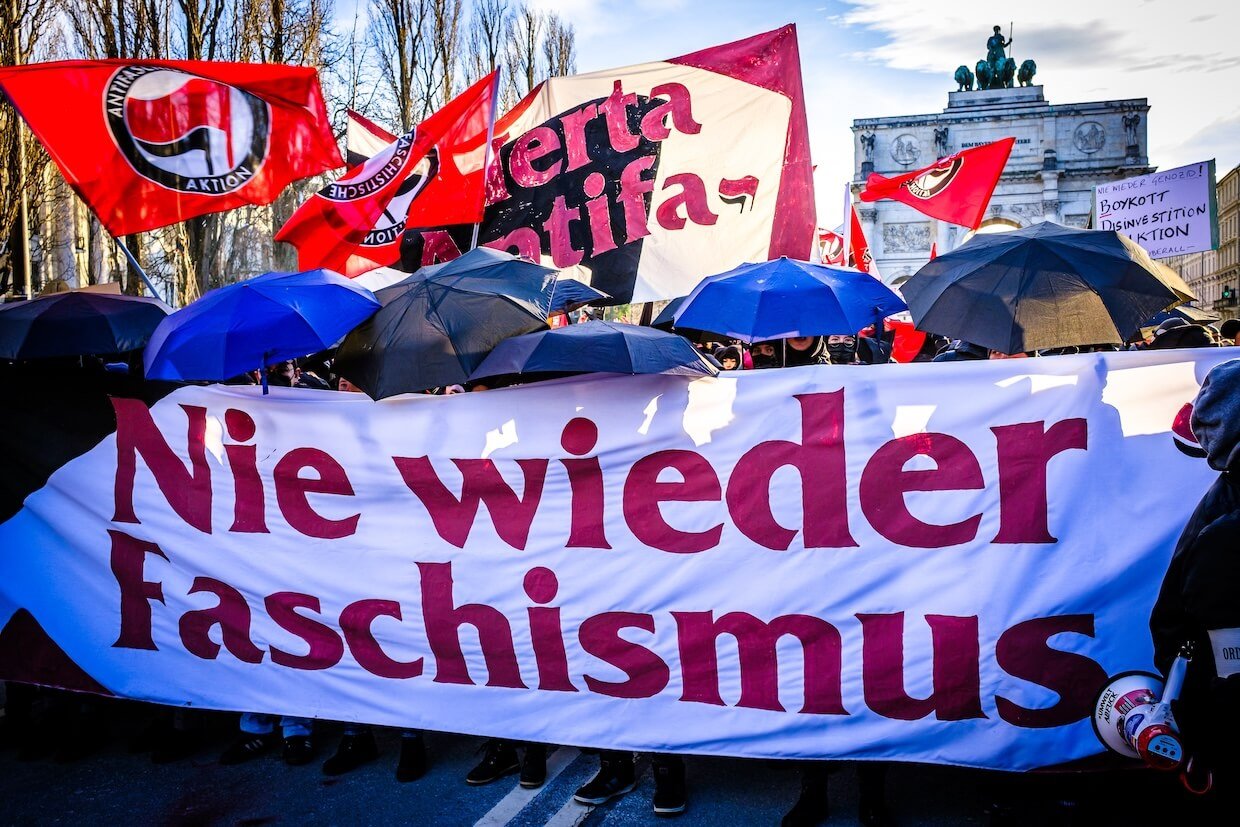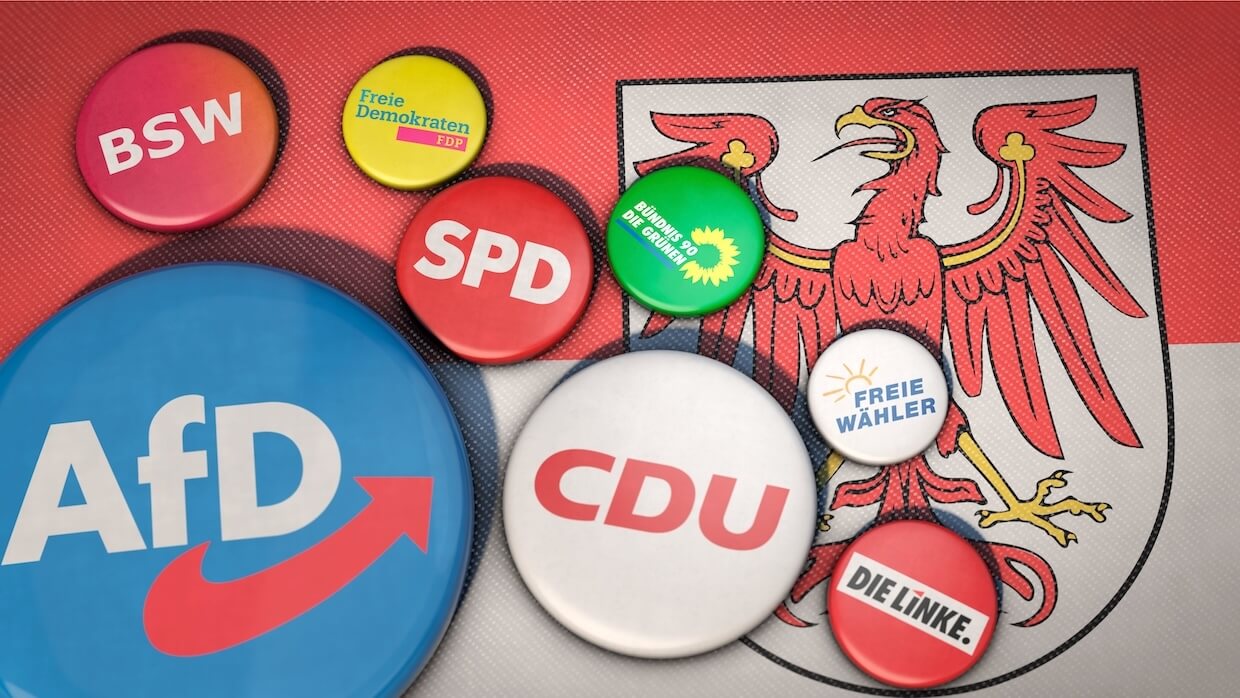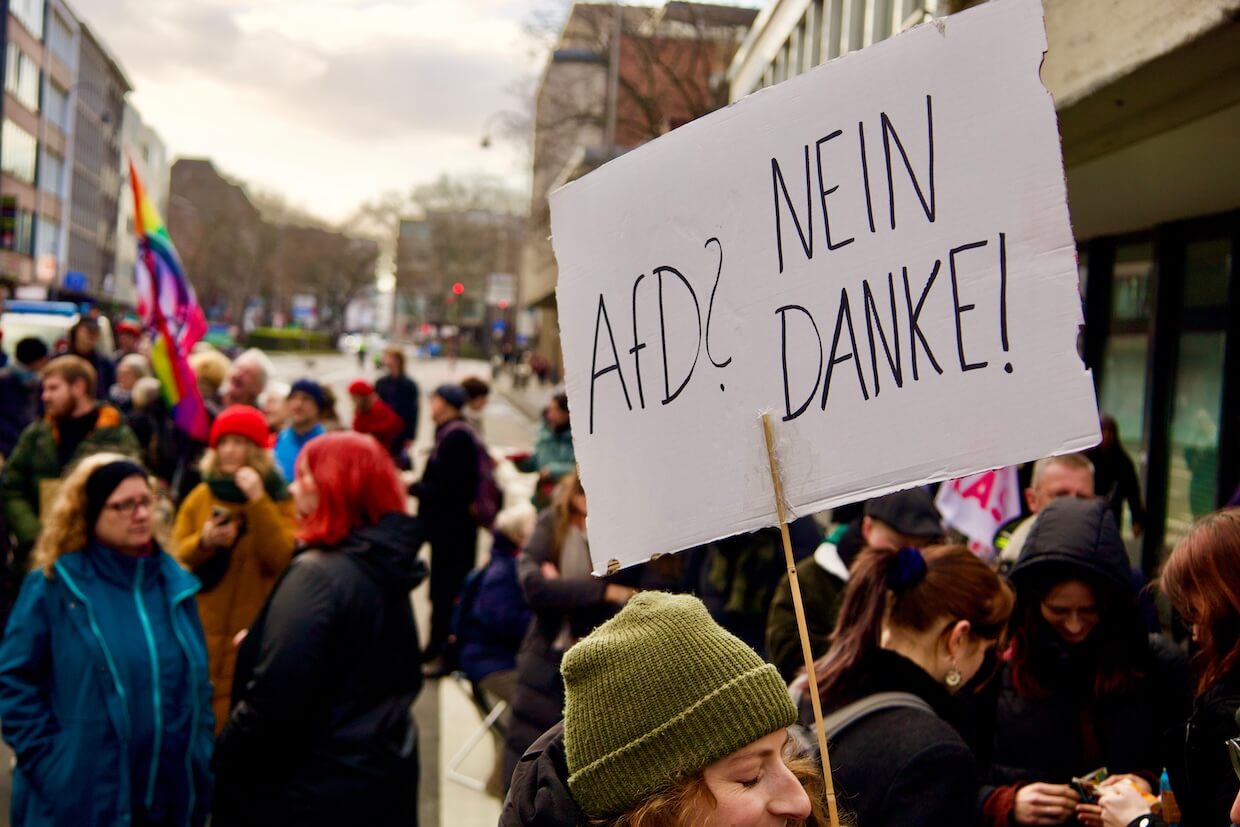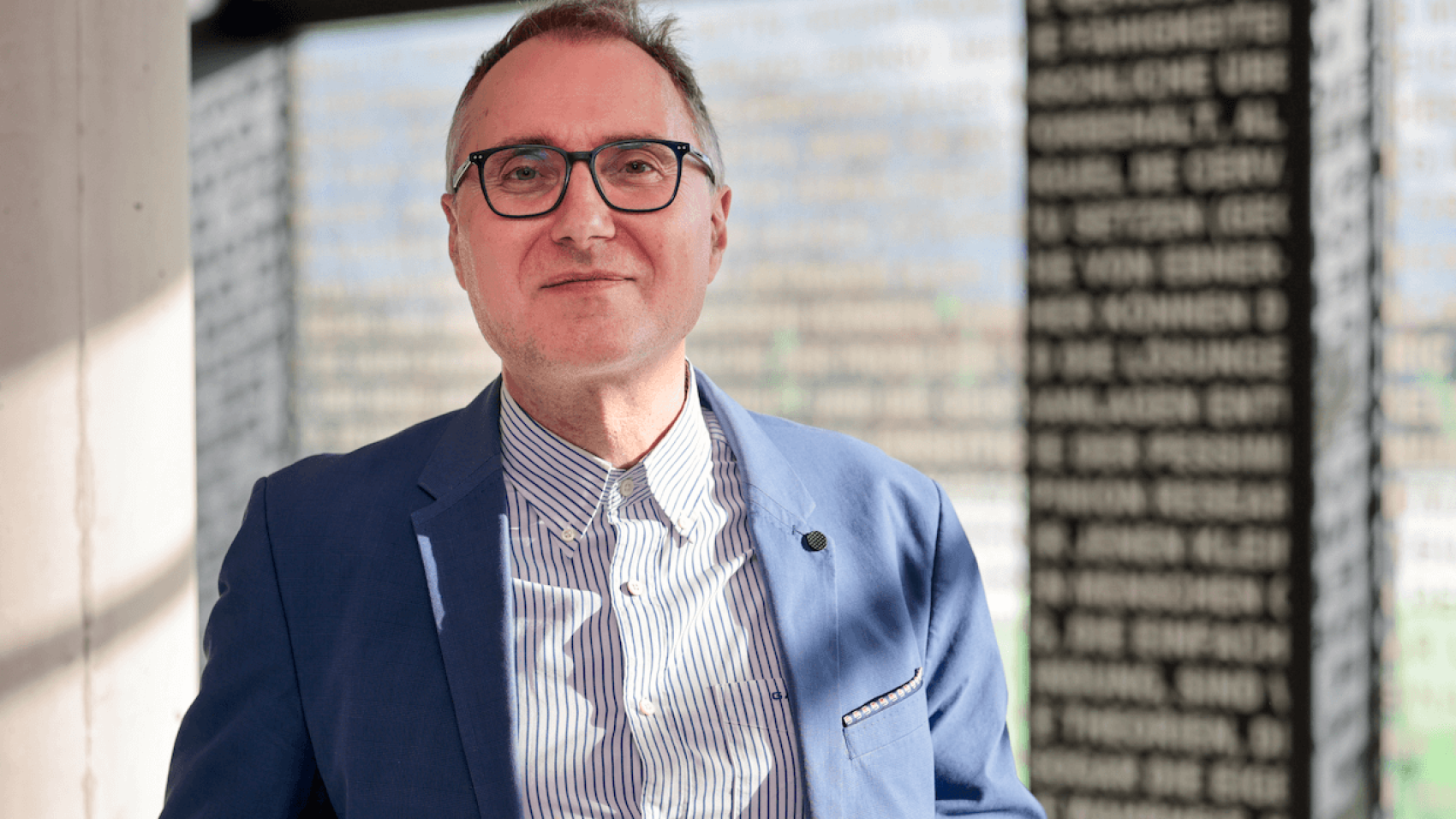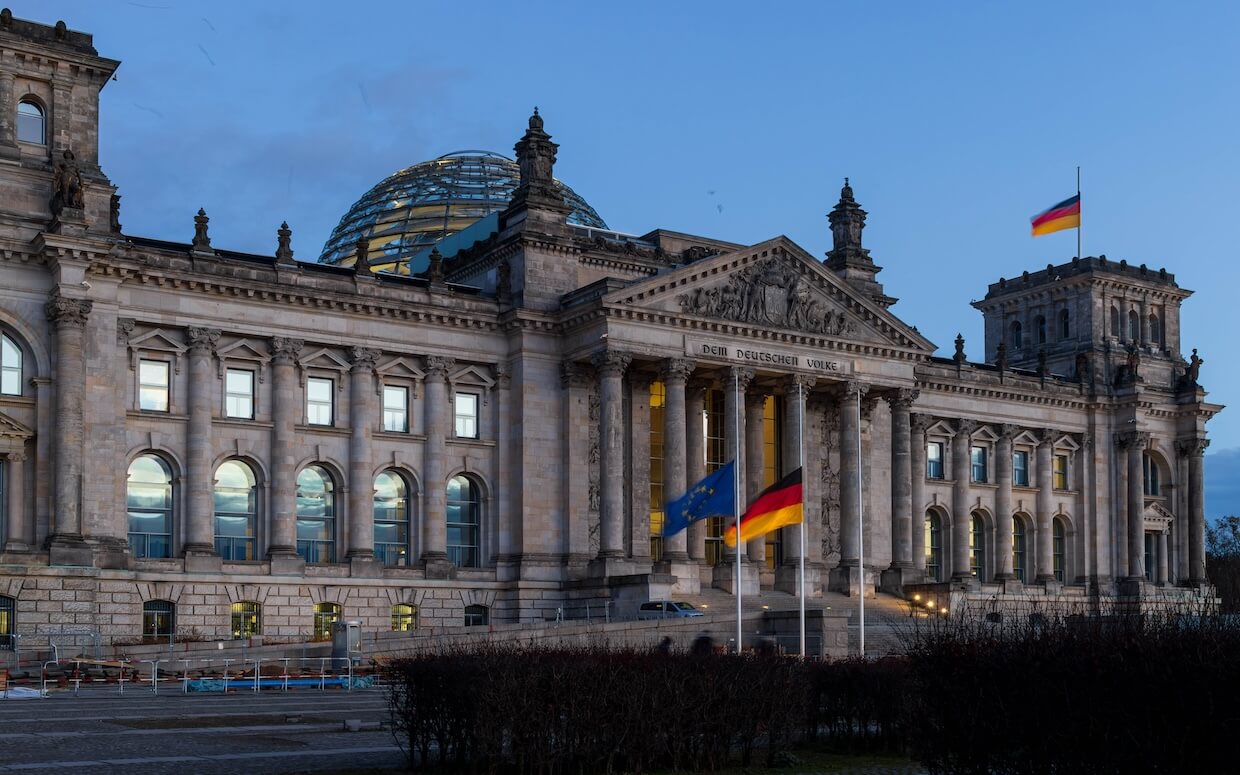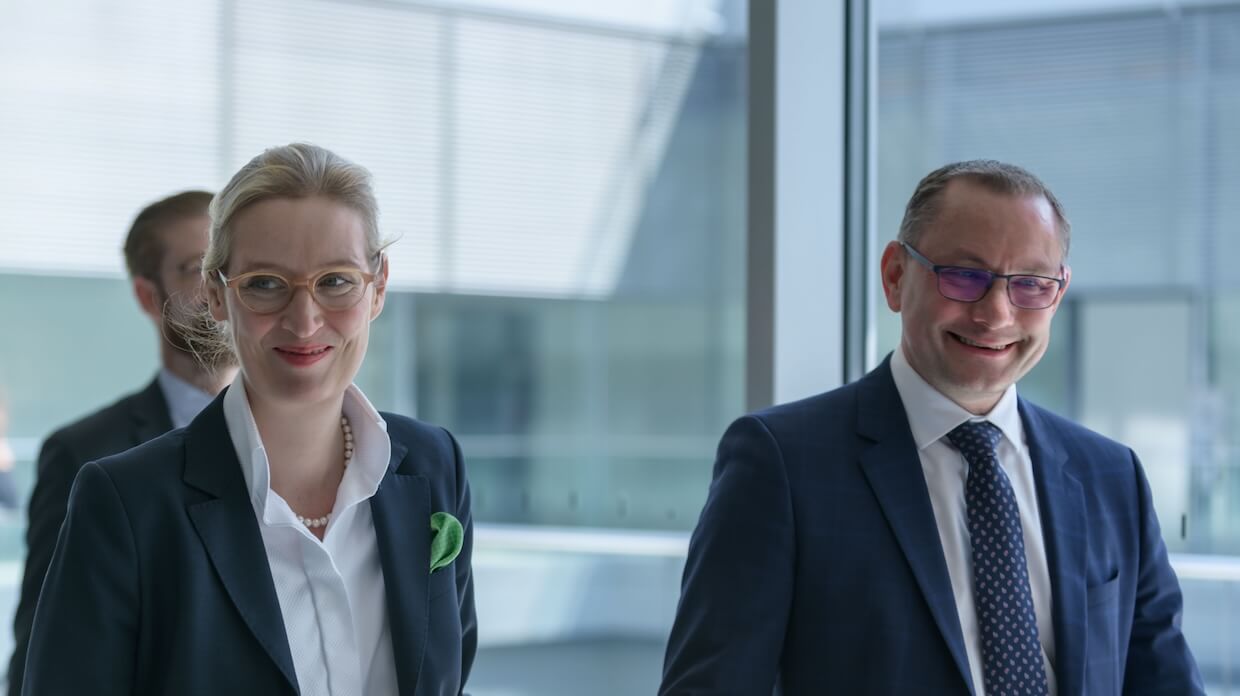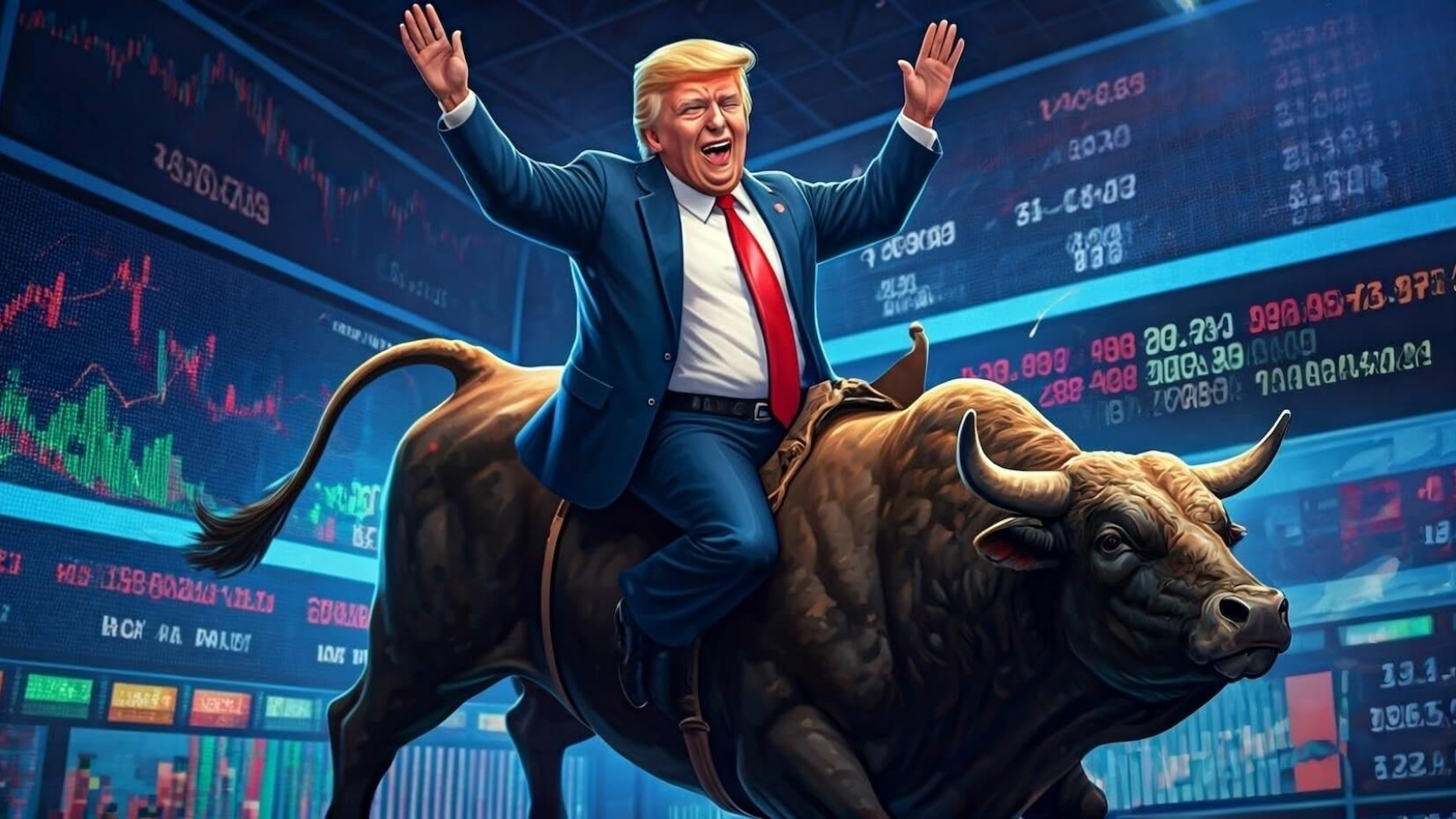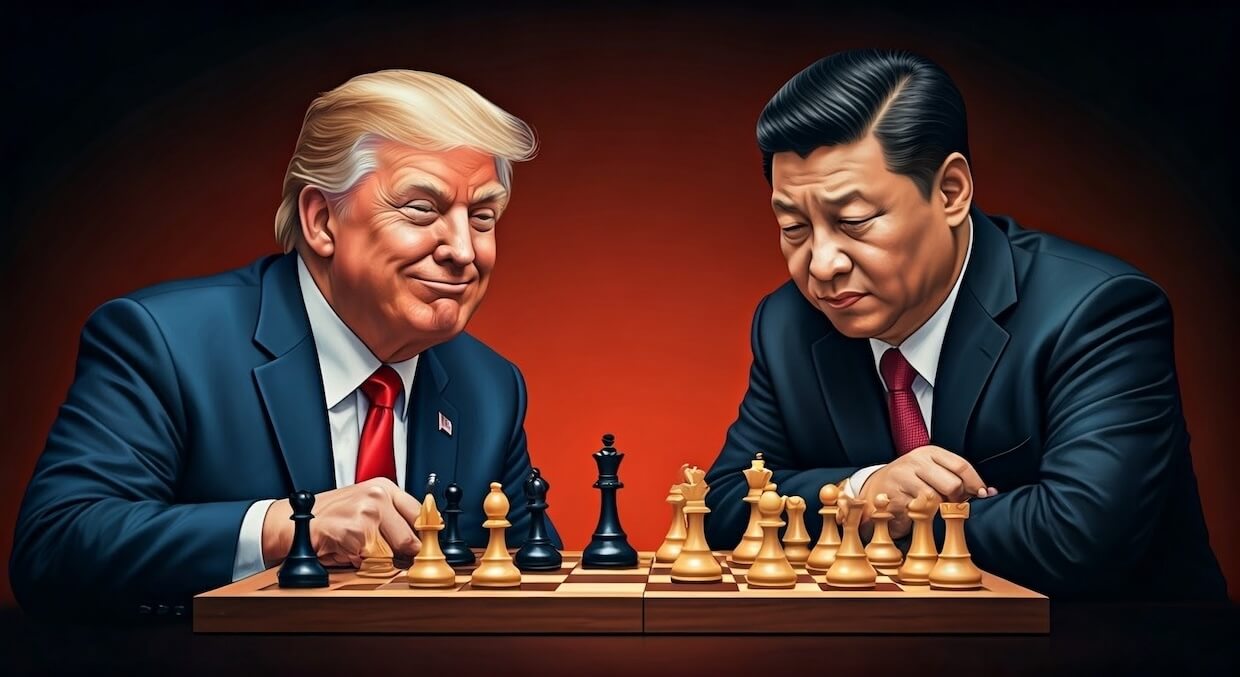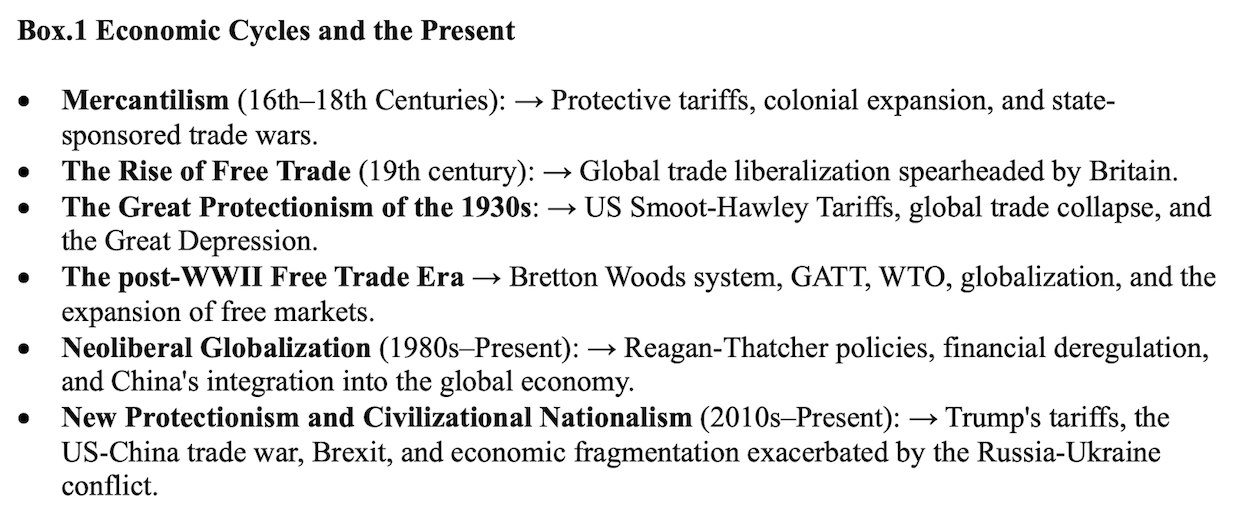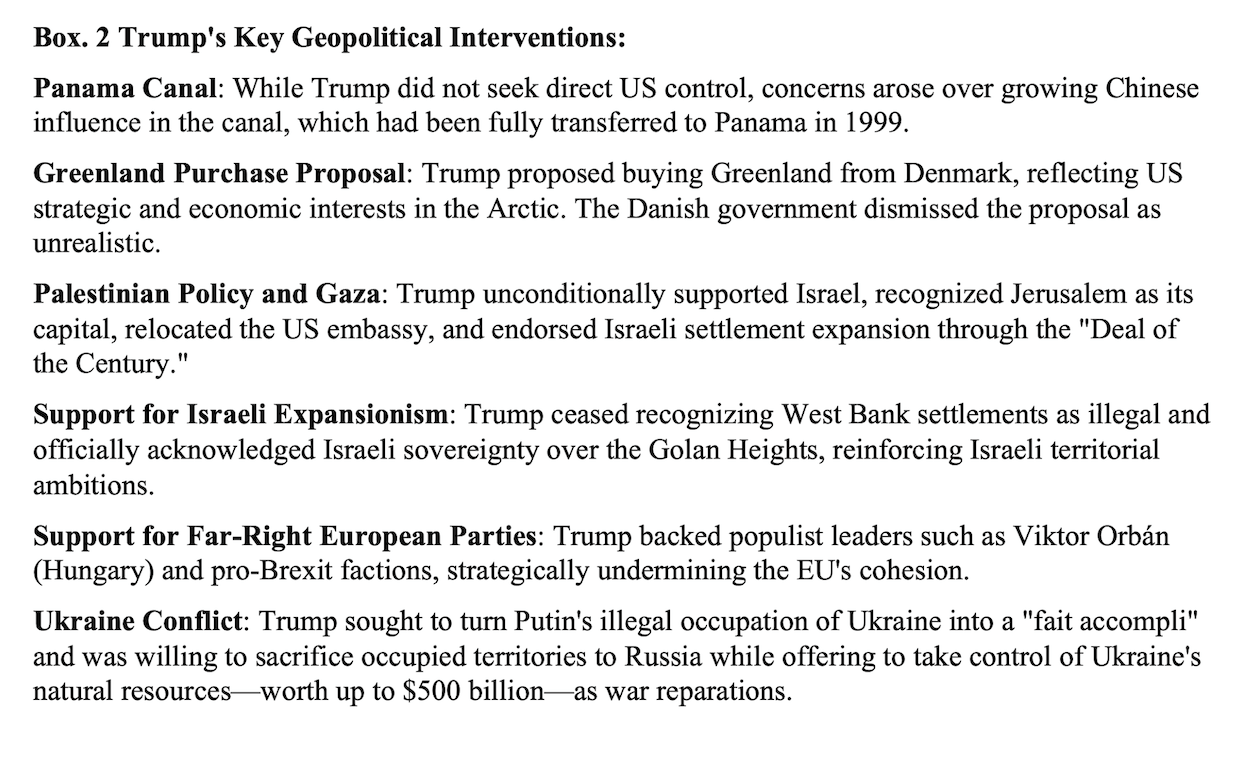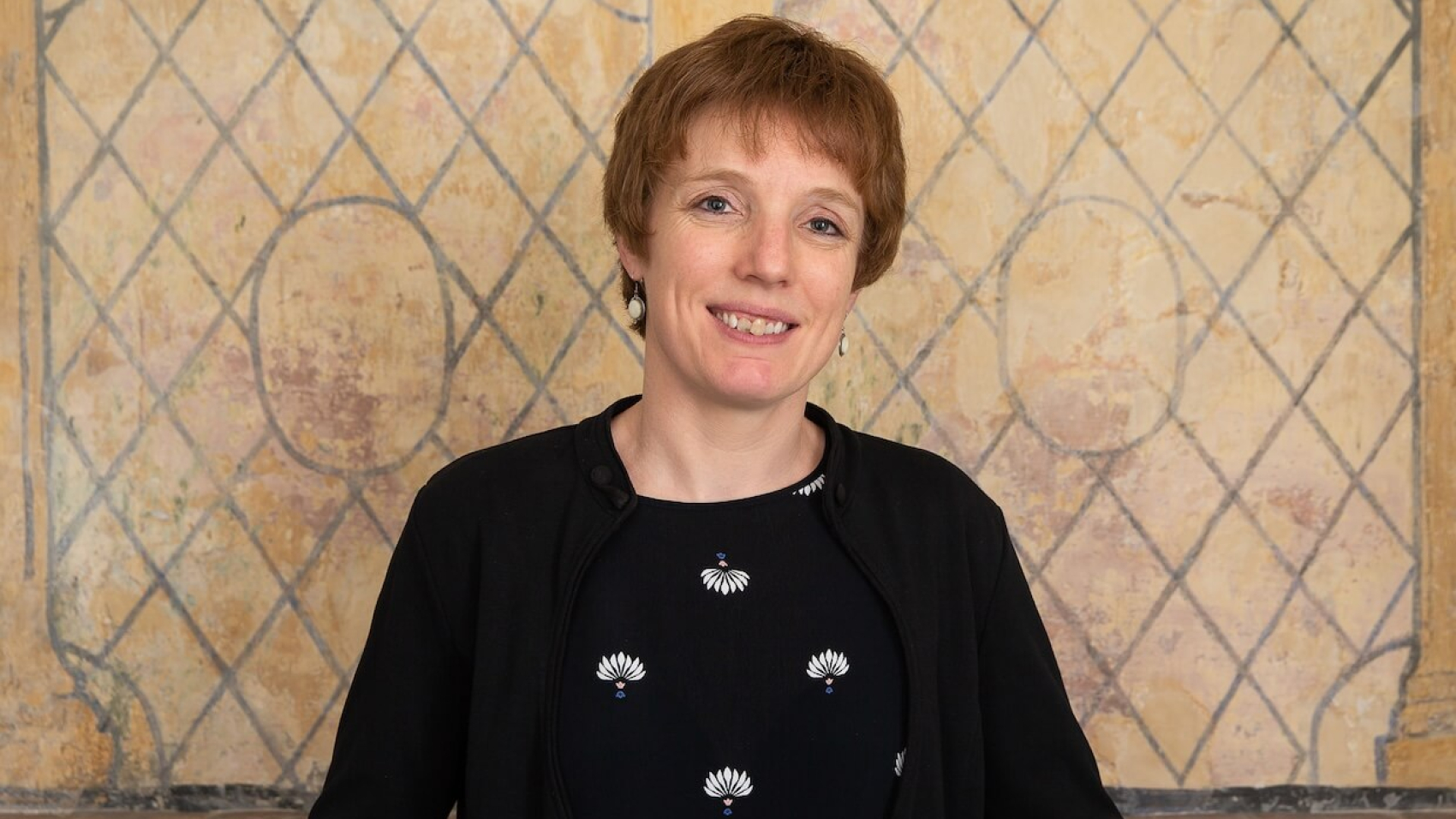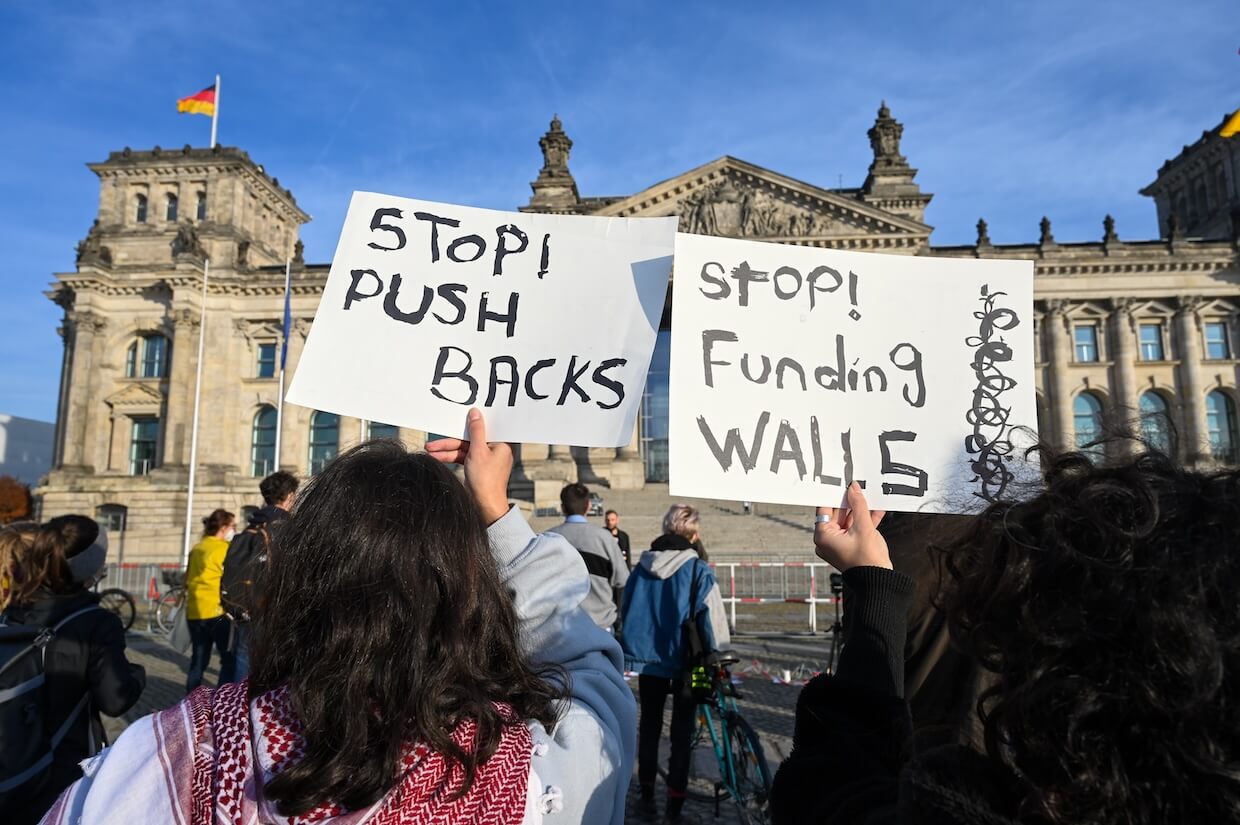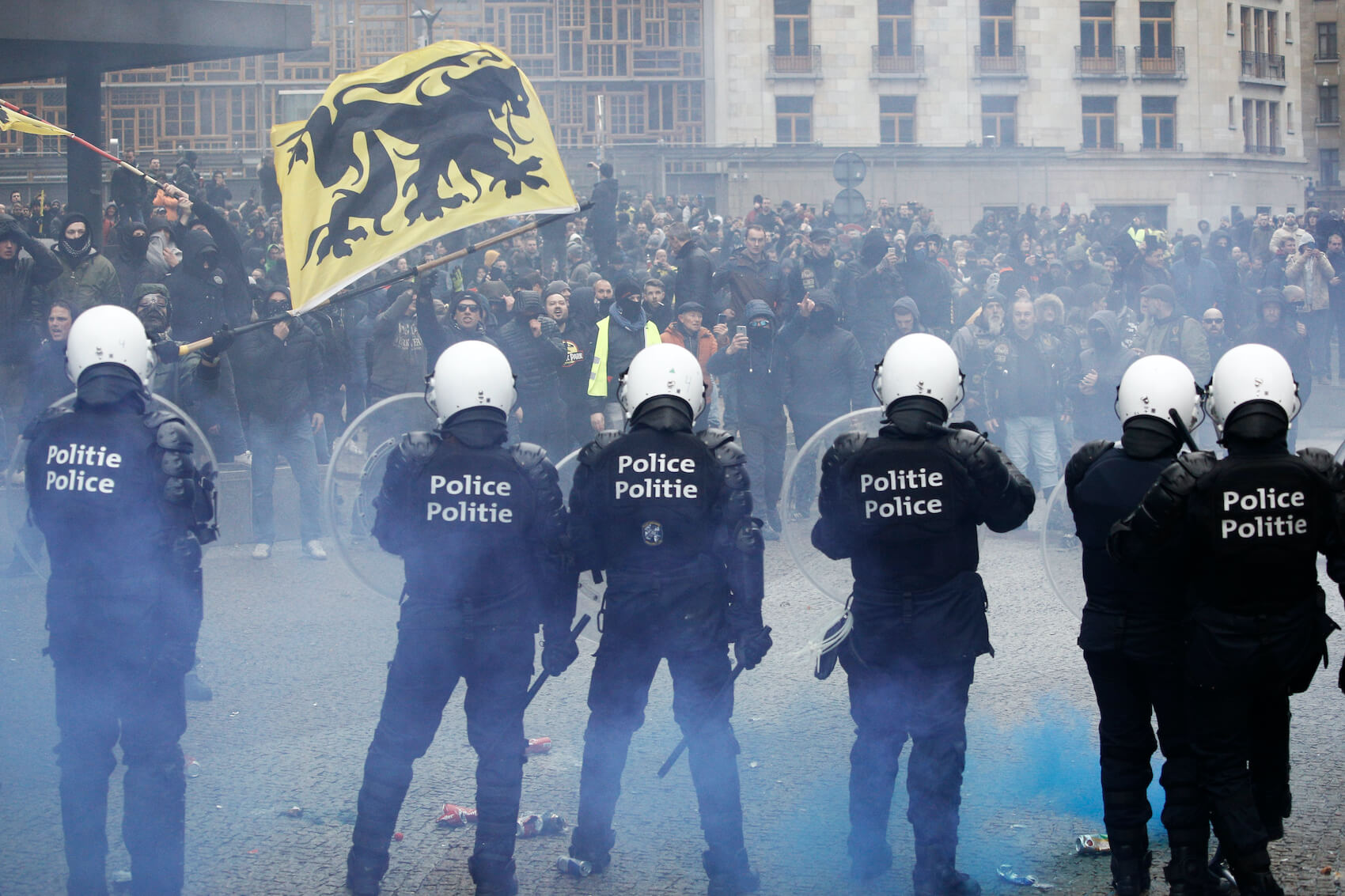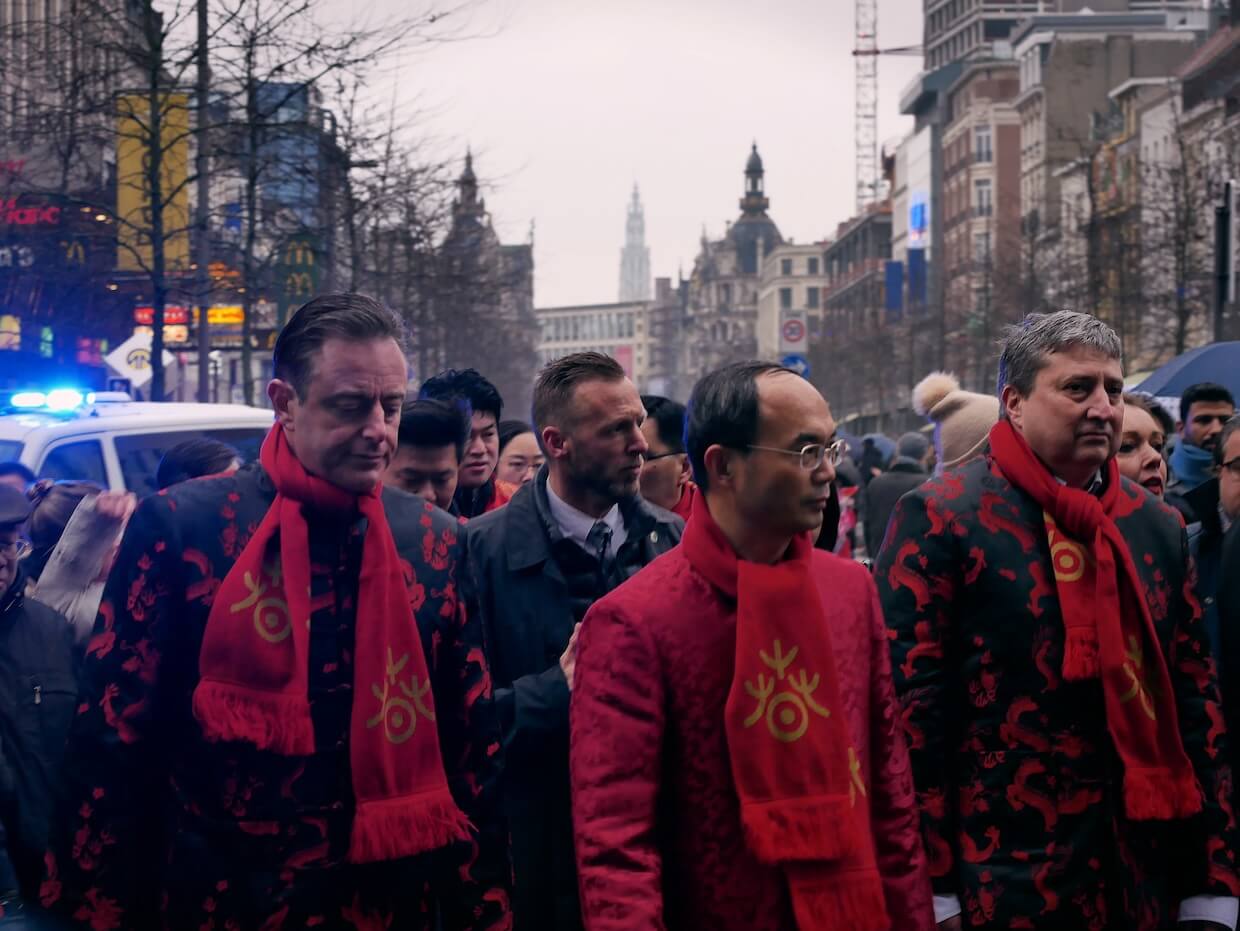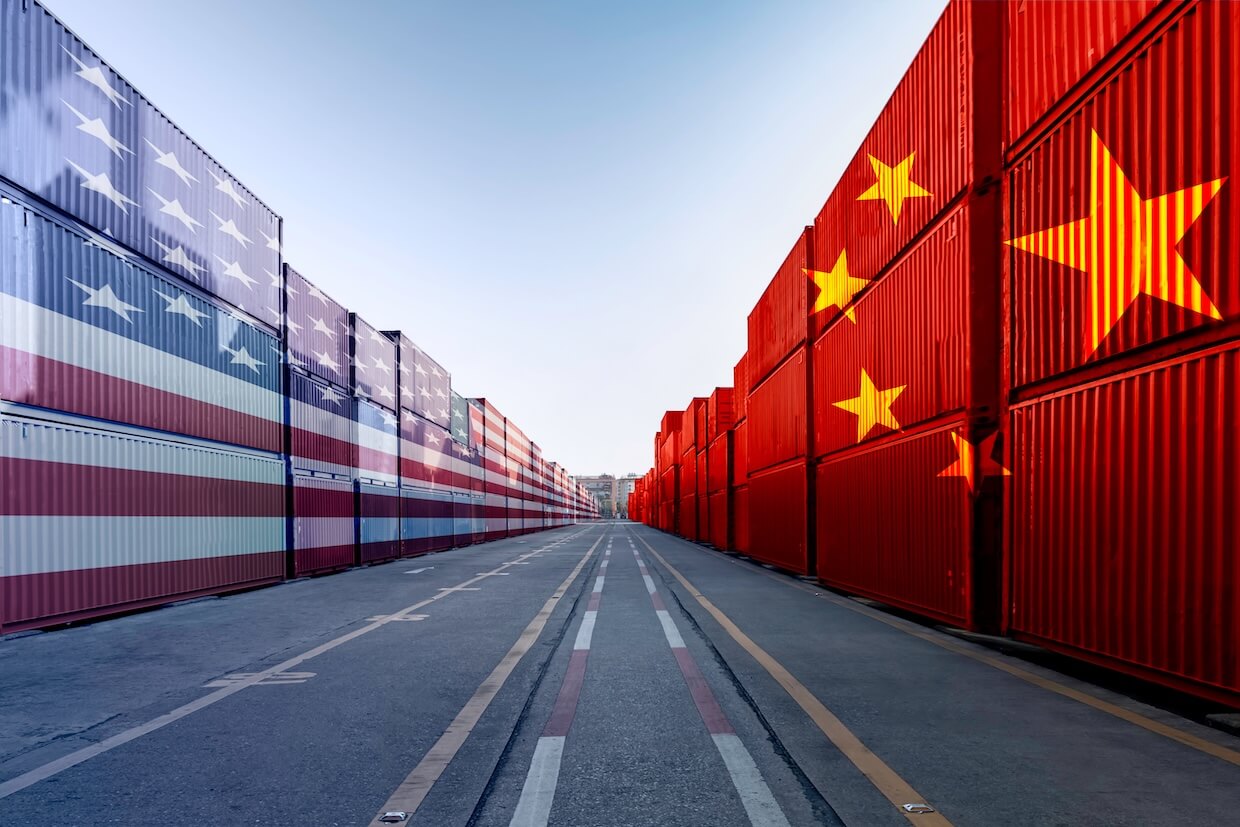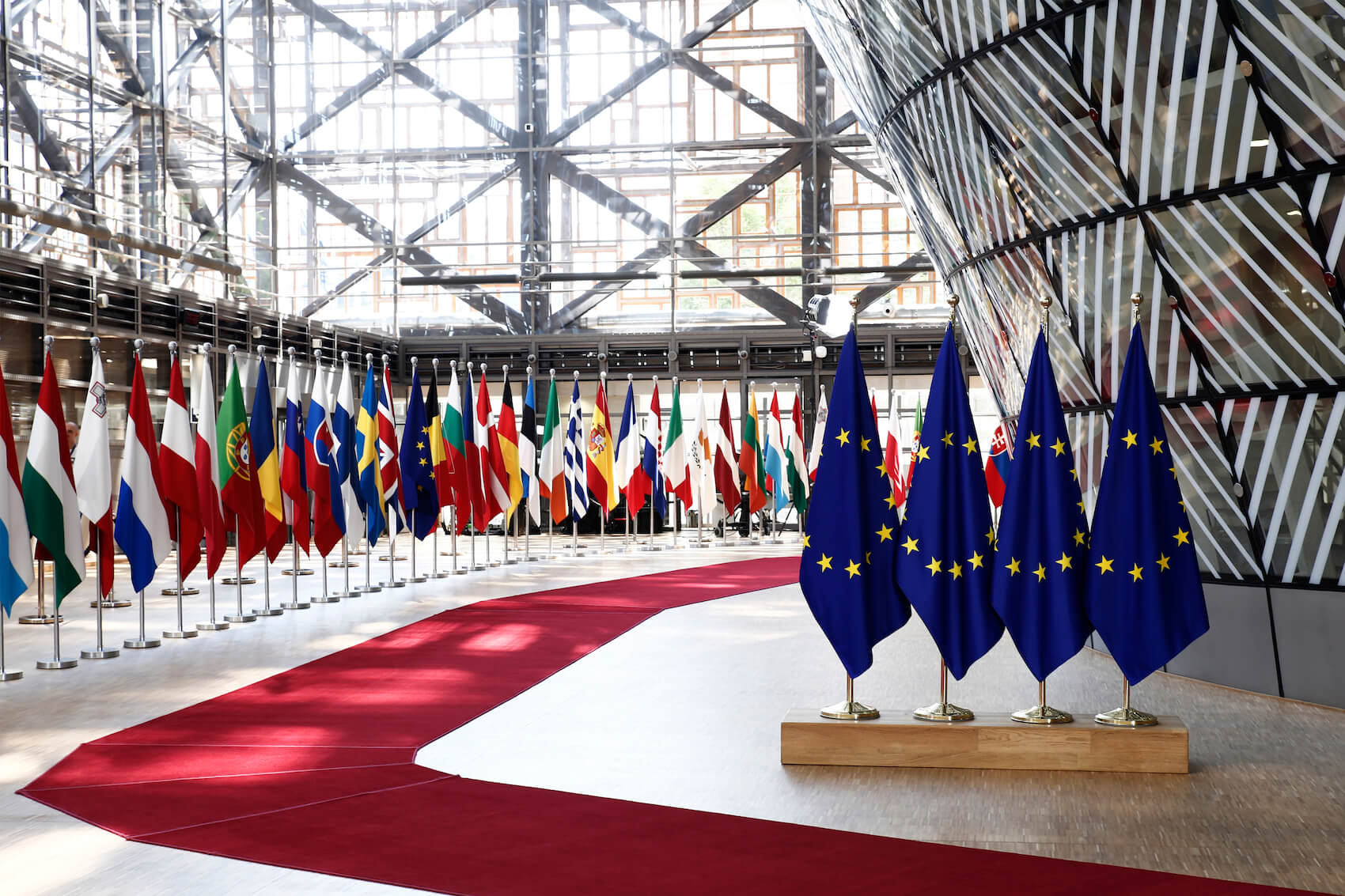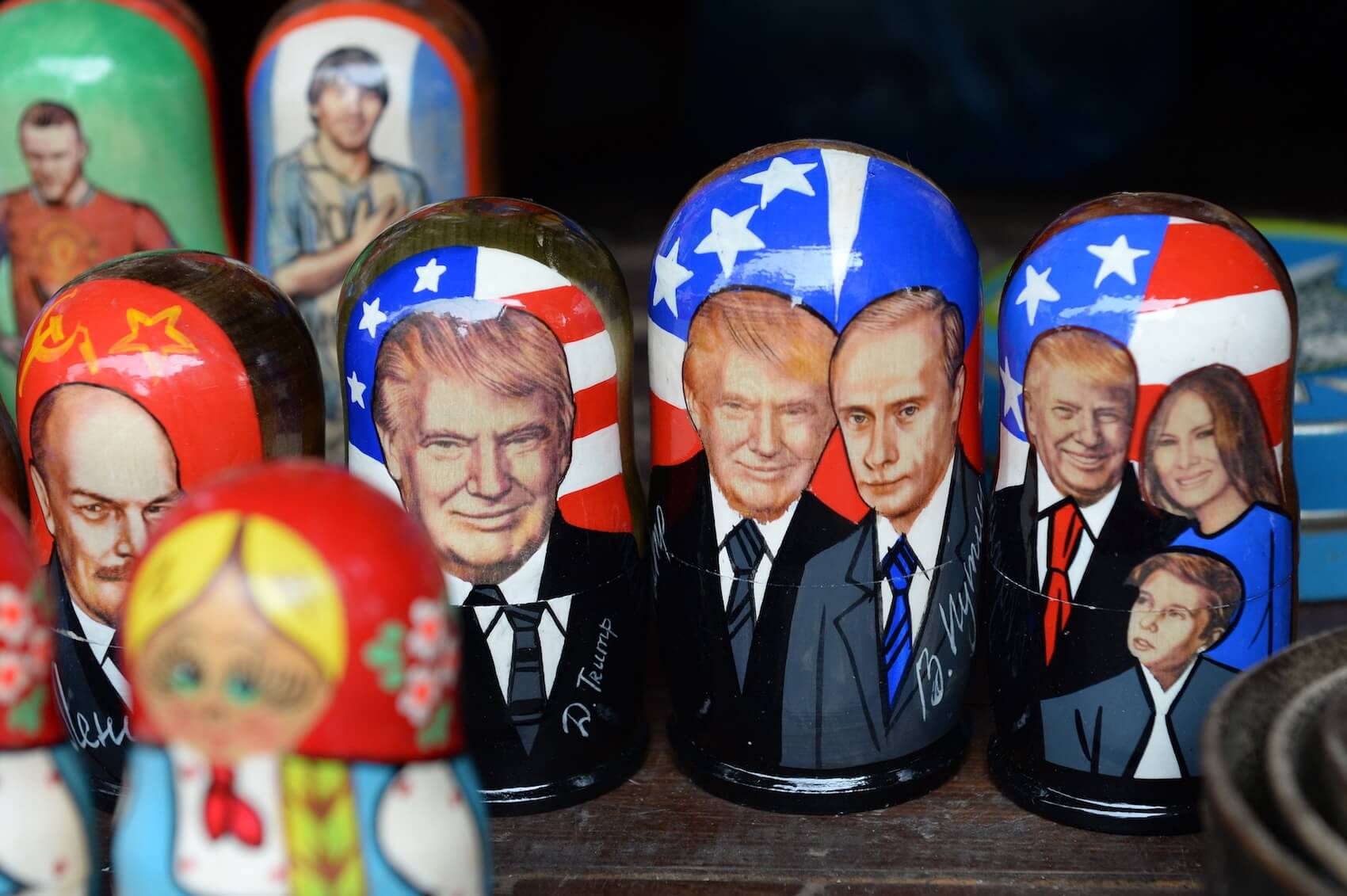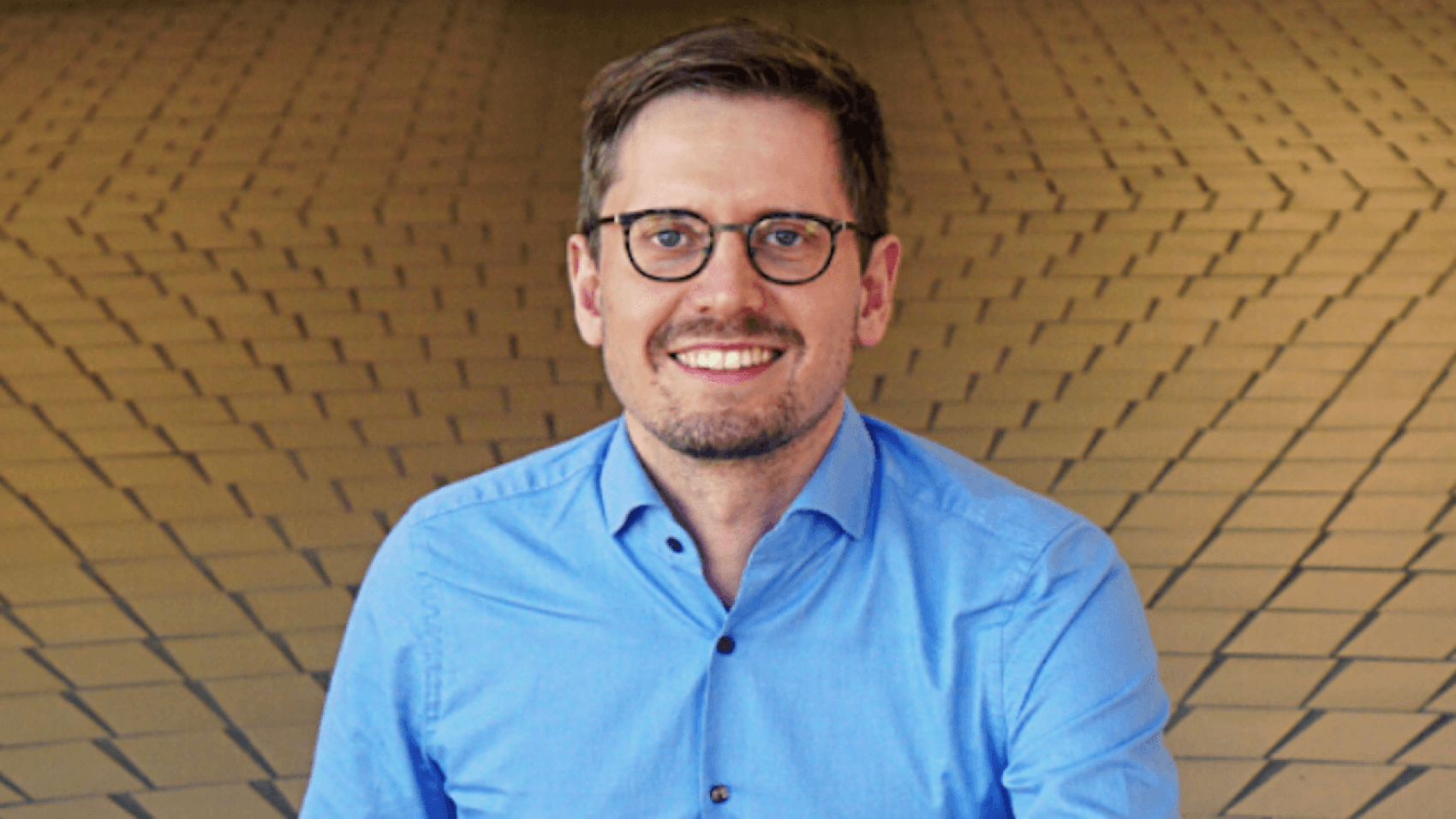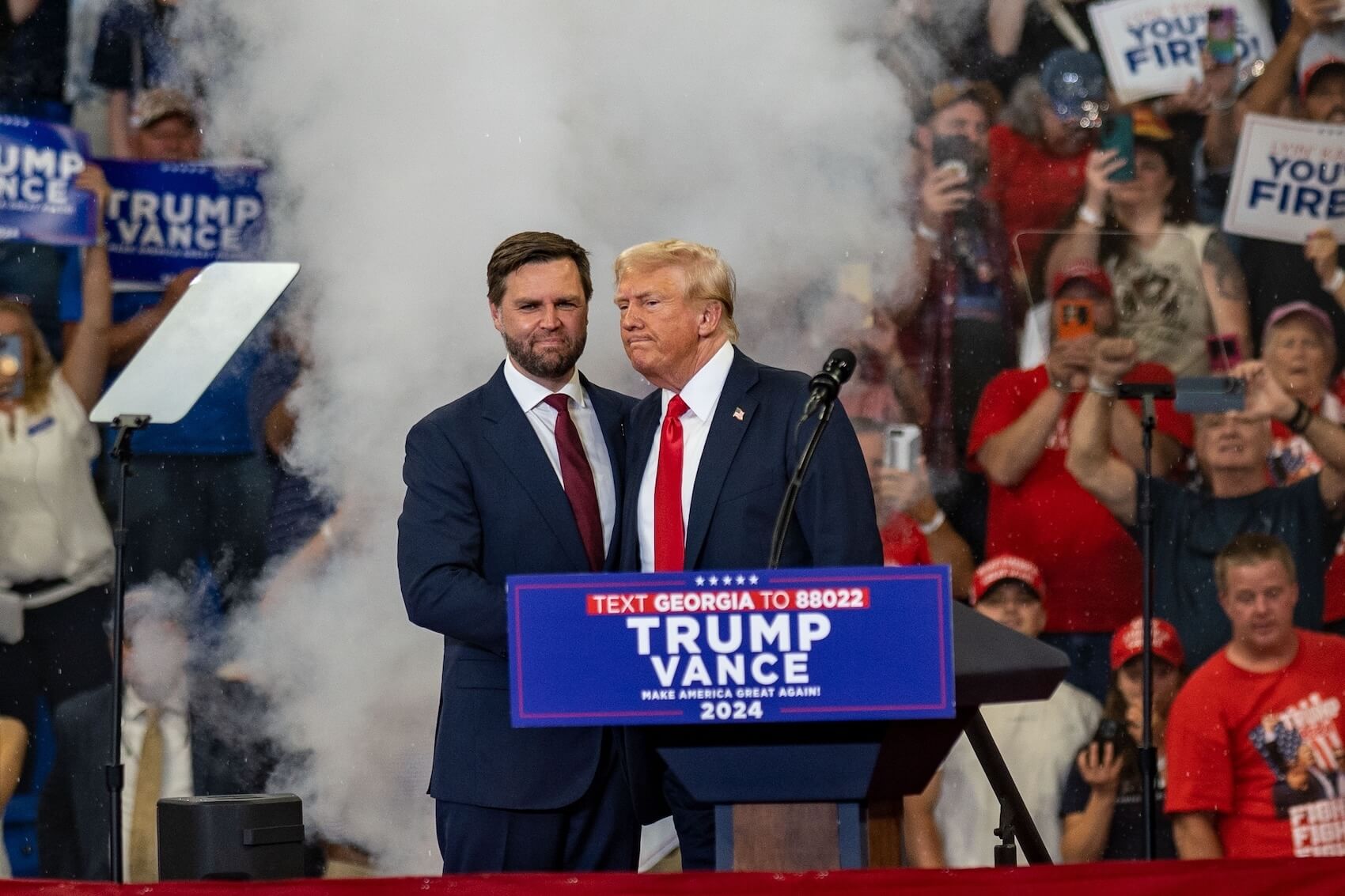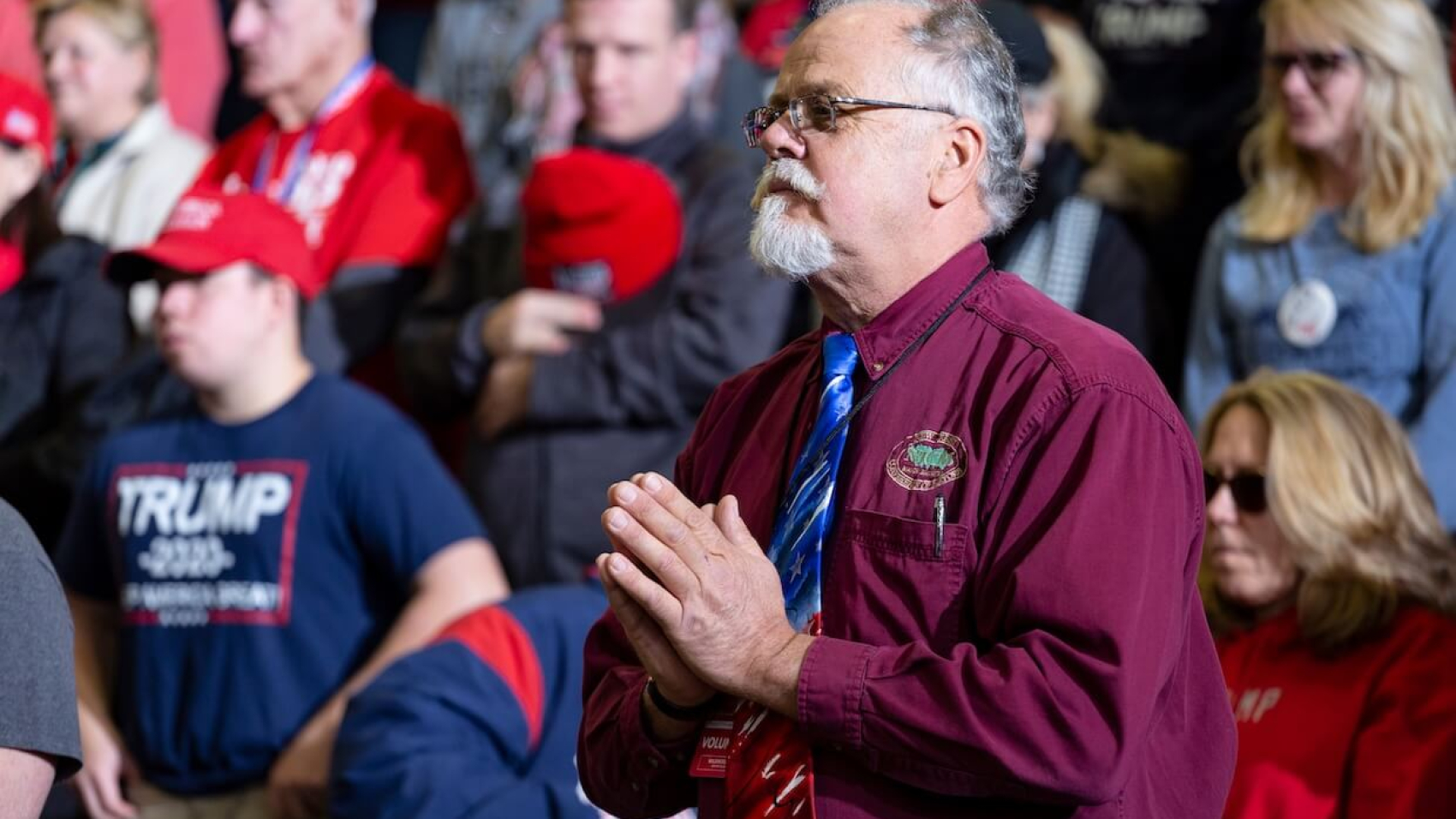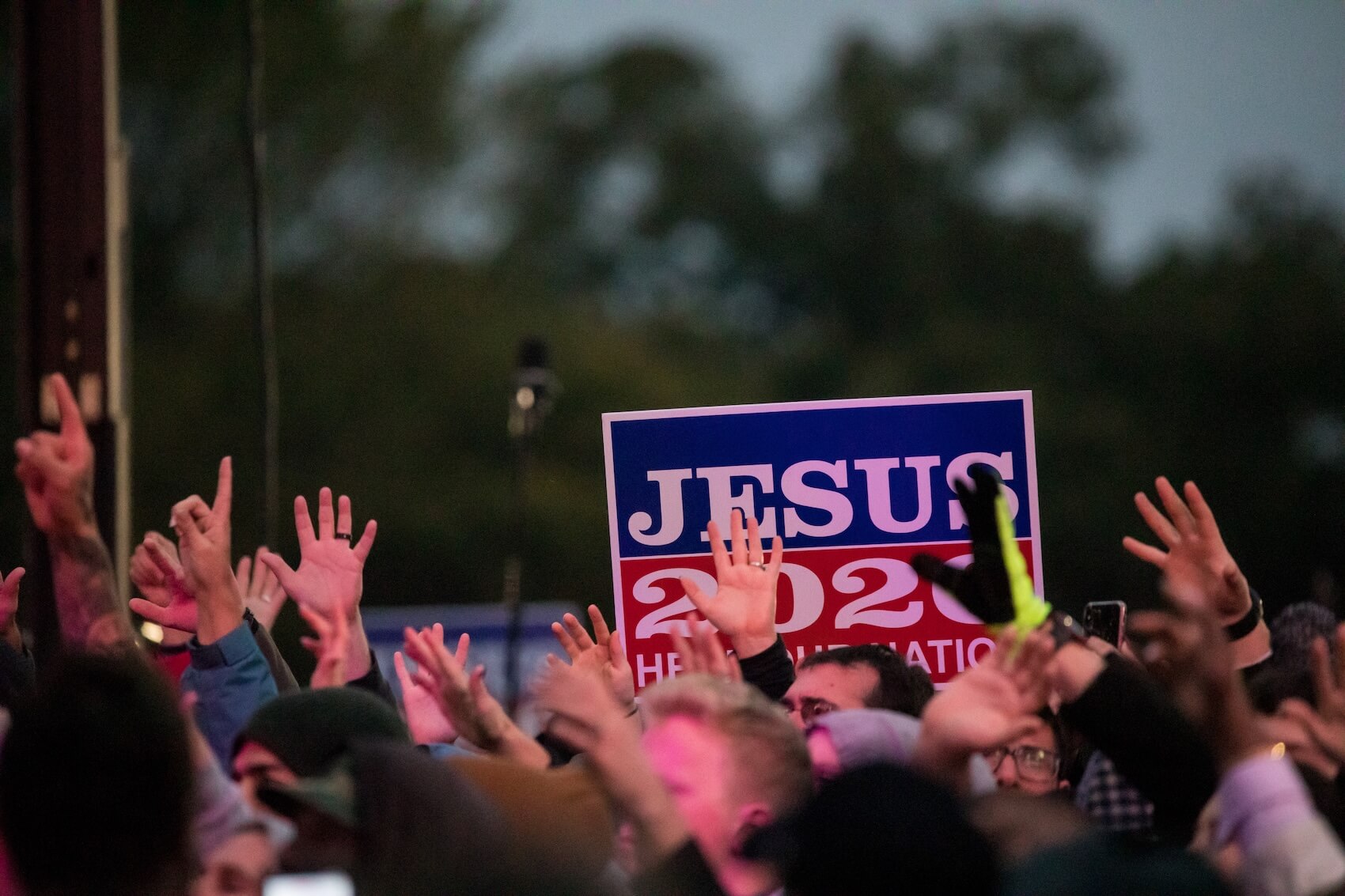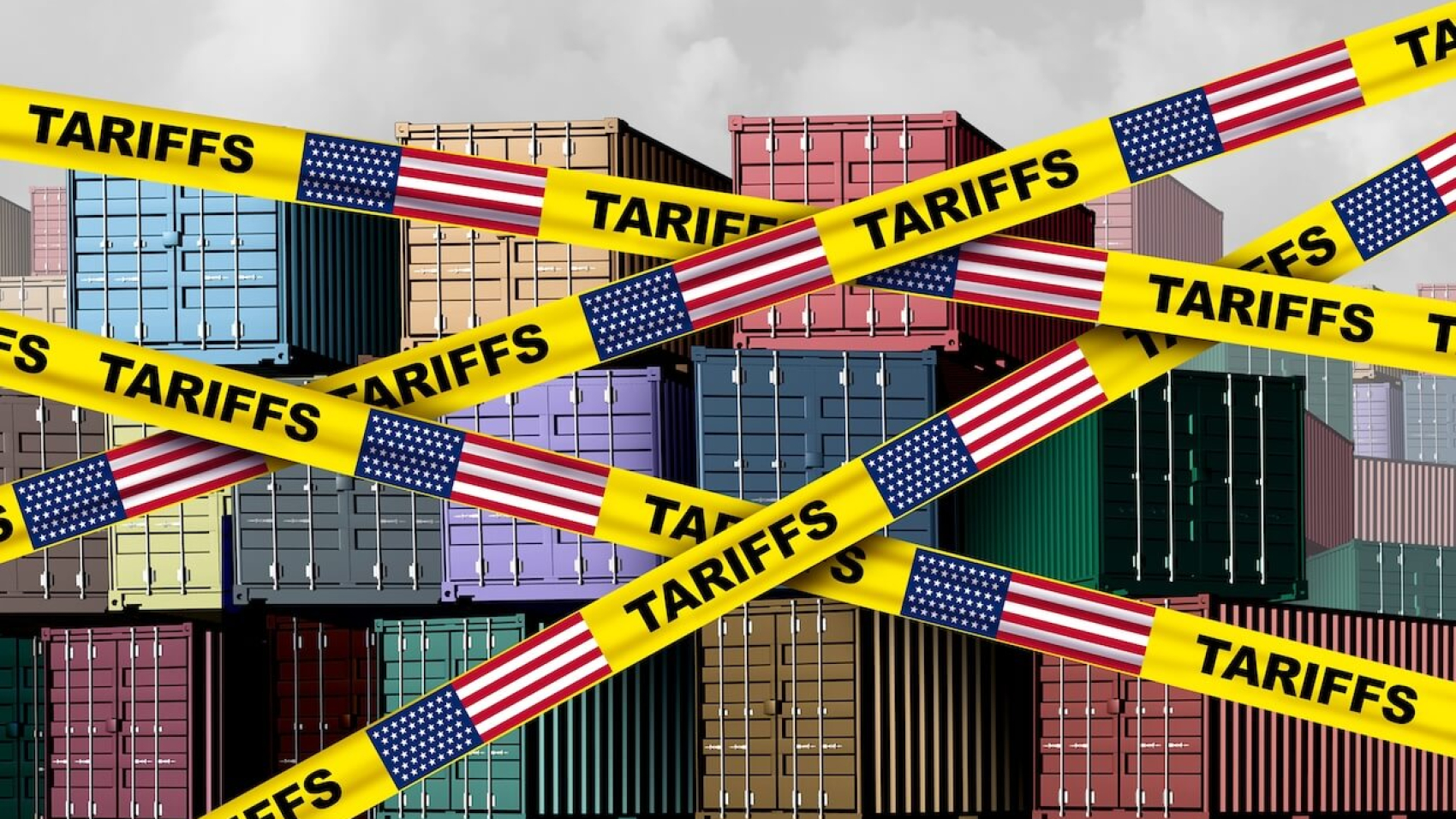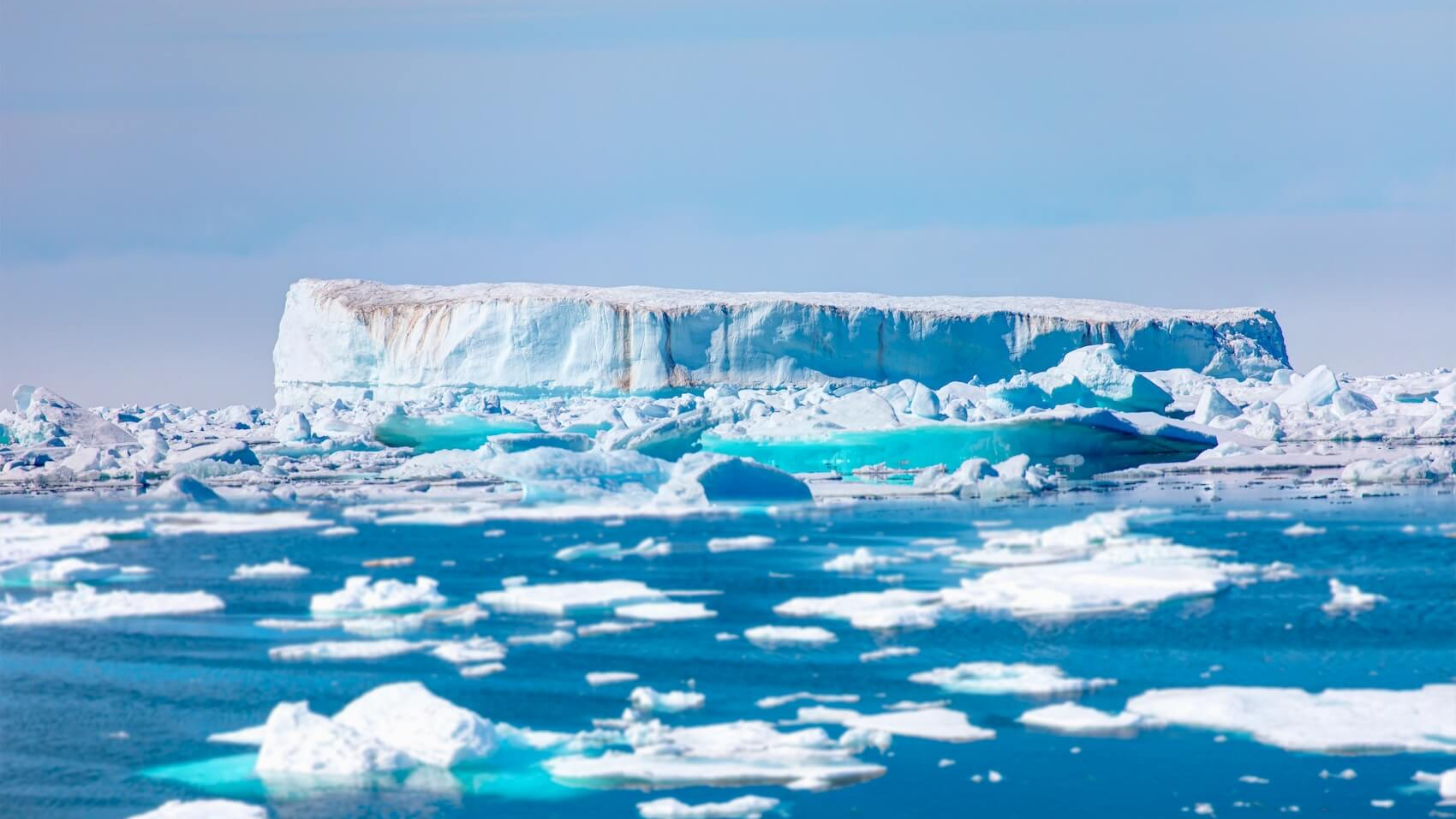Please cite as:
Lewis, Morgan. (2025). “Understanding Climate Skepticism: A Rhetorical Analysis of Climate Communication by PiS, AfD, and SD.” Populism & Politics (P&P). European Center for Populism Studies (ECPS). February 6, 2025. https://doi.org/10.55271/pp0047
Abstract
Two major global challenges of recent decades are climate change and populism. While there is a strong scientific consensus on anthropogenic climate change, social science research highlights how climate change and policy reforms have provoked significant backlash within populist discourse. Despite the clear intersection of these phenomena and the threats they pose to modern democracy, limited literature explores this relationship. This article examines the mechanisms by which right-wing populist (RWP) parties promote climate skepticism or hostility to climate policies. Focusing on the Law and Justice Party (PiS) in Poland, the Sweden Democrats (SD), and Alternative for Germany (AfD), this study conducts a rhetorical analysis of their climate communication to investigate how RWP positions align with shifting ideological and electoral contexts. The research employs Scott Consigny’s (1974) rhetorical situation framework and integrates Wodak’s (2015) interdisciplinary approach to populism, establishing a novel methodology for analyzing populist rhetoric. Findings reveal that RWP parties deploy rhetorical strategies such as framing an antagonism between the “elite” and “the people,” prioritizing national self-interest over climate concerns, and using anti-intellectual rhetoric. However, notable differences in rhetorical strategies emerge among the parties due to varying ideological and political contexts, demonstrating the adaptability of populist rhetoric around its ideological ‘center’. This study highlights the interplay between ideological and rhetorical facets of populism in shaping climate communication. By offering a nuanced understanding of how RWP parties engage with climate discourse across contexts, this research provides a foundation for further exploration of climate communication within populist narratives.
Keywords: Climate change, climate skepticism, right-wing populism (RWP), climate communication, anti-intellectualism, Euroscepticism
By Morgan Lewis*
Introduction
Contemporary international relations have been increasingly dominated by two salient challenges over recent decades: populism and climate change (Buzogány & Mohammad-Klotzbach, 2021). As right-wing populism (RWP) is on the rise, it has become an increasingly formidable presence in European politics, epitomized by results such as the Brexit referendum and strong electoral performances by Alternative for Deutschland (AfD) in 2024 (Angelos & Nöstlinger, 2024), French National Front (RN) (Forchtner & Lubarda, 2022), and Swedish Democrats (SD) (Diehn, 2022).
This notable rise in RWP is paralleled by a climate crisis the genesis of which lies at the heart of our economic system. Climate change, as a paradigmatic example of a crisis that demands cosmopolitan and internationally orchestrated action, is contrasted by the fragmentary and nationalist discourse of RWP parties (Mudde, 2004; Huber, 2020). Thus, the global mushrooming of RWP and its congruence to climate skepticism and hostility to action poses a serious threat to global climate targets, as evidenced in a recent report by the Peterson Institute for International Economics, which found that rising populist opposition to climate policies is jeopardizing plans to achieve net zero emissions (Campanela & Lawrence, 2024).
Indeed, as the more confrontational and transformative decisions on climate change increasingly lie fore front of political debate, understanding how RWP parties promote climate skepticism and/or hostility to action through their rhetoric is essential for generating an appropriate response that allows for a continuation (and acceleration) of decarbonization efforts (Lockwood, 2018). Despite the importance of understanding RWP climate communication, the specific rhetorical mechanisms through which this occurs remains largely unexplored (Lockwood, 2018; Marquardt et al., 2022). It is this lacuna in the relevant literature that forms the basis of this thesis.
Literature Review
RWP is a longstanding feature of European politics and has attracted considerable interest from social scientists and political commentators. This has been engendered by the recent uprising of RWP movements across Europe (Sandrin, 2021; Ortu, 2014; Greven, 2016; Abromeit, 2017). While the impacts and potential ramifications of the growth of RWP across Europe have been heavily debated, there is a noticeable dearth of literature on how RWP parties promote climate skepticism and/or hostility to action on climate change. The most current literature suggests that climate skepticism is associated with conservative ideological positions, with many studies findings a correlation to institutional distrust, a preference for a small state, and the belief that environmentalism is stereotypically feminine (Huber, 2020; Atanasova & Koteyko, 2017; Jylha et al., 2020). In line with this, the literature on right-wing environmental communication also details how right-wing actors cast doubt over climate science to legitimize normative claims about climate change for ideological and political purposes (Carvalho, 2007; McCright & Dunlap, 2008).
However, few accounts directly interrogate the nature of the relationship between populism and climate skepticism. Mudde’s (2004) article interprets populism broadly as a ‘thin-centered’ ideology in which the fundamental cleavage in society is framed as between a ‘corrupt elite’ and ‘pure people,’ evoking a sovereign demos. More recent scholarship has conceptualized RWP as being marked by themes such as democratic backsliding and the erosion of institutions of the ‘liberal order,’ such as feminism or pacifism (Moghissi, 2016; Klein, 2018). The congruence of RWP and hostility to climate action is argued to be a consequence of both the ideological composition of RWP, which frames the ‘climate agenda’ as elitist and antithetical to national interest, and the changing structural conditions in many countries that have ‘left behind’ portions of the population. Indeed, within this framing, climate policies are conveyed as further extension of these processes of modernization and globalization that reflect the interests of an elite class that do not serve the population at large (Lockwood, 2018). Many recent examples illustrate this point, such as the AfD’s opposition to the Green New Deal, arguing it would harm farmers (Chatham House, 2024), and the Spanish Vox party’s claims that climate policies are part of a globalist agenda aimed at damaging Spain while benefiting China (Mathiesen, 2022).
However, there are severe limitations to the current literature on this connection between RWP and climate skepticism. Limited research has examined the specific rhetorical devices used by populist parties to promote these views, despite their importance in understanding the dynamics of this relationship. Moreover, much of the literature does not differentiate between distinct RWP parties, often treating them as part of a broader regional or global phenomenon. An exception is Gemenis et al. (2012), who, after surveying 13 RWP parties across 12 EU countries, concluded that “party positions on this issue [anthropogenic global warming] are clearly anti-environmental.” My research addresses these cleavages in the literature, and in doing so will contribute to the literature by establishing a framework to better understand the linkages between the expansion and deepening of populist rhetoric in political discourse and climate skepticism and/or hostility to climate action. To best do this, I will analyze how this rhetoric is shaped by domestic political contexts, how these rhetorical devices differ between party contexts, and the implications for future climate change communication in the context of continued RWP electoral success.
Methods and Structure
Regarding the chosen method for this study, I will undertake a qualitative, comparative analysis of three European populist parties. The relevant primary data I will be assessing will be speeches, interviews, or statements regarding climate change/climate policies, with a broader investigative framework also considering party manifesto transcripts and member magazines. Secondary sources will include monographs and academic journals. Due to language barriers, much of my primary data will be translated or collected via English-speaking media outlets/journals.
This choice of methods is appropriate for two reasons: first, as I intend to perform a rhetorical analysis to inductively examine populist climate communication, a quantitative research approach is unnecessary as I am not seeking to quantify or provide a value for how populist leaders espouse hostility to climate policies. Second, a comparative research design enables me to assess RWP parties in relation to one-another, providing more insight into how domestic political contexts affect rhetorical choices as-well as mitigating the danger of individual examples reducing the more general applicability of my results (Clark et al., 2019).
I will be examining Poland’s PiS, Germany’s AfD, and Sweden’s SD. I have chosen these European parties as they provide a broad range in terms of the vehemence of their opposition to climate mitigating policies, with all members categorized as either ‘denialists/skeptical’ or ‘disengaged/cautious’ on their climate policies by Schaller and Carious’s (2019) study. Moreover, I have selected all European parties, with all three operating within EU states that share similar constitutional structures as this allows me to gain greater insight into the similarities and differences of populist rhetoric in broadly similar contexts.
My research project will be structured as follows: Section two will outline my methodology, through which my qualitative framework will be employed to answer my research question. Through doing so I will elucidate Consigny’s ‘rhetorical situation,’ an assessment of Wodak’s interdisciplinary interpretation of populism, and an analysis of the association between nationalism, climate change and RWP. Section three will implement a rhetorical analysis of each chosen political party. Section four, following the rhetorical analysis, will discuss the results and outline the implications of this research.
Methodology
In this section, I will outline the methodology employed in this thesis. By examining Scott Consigny’s theory of the rhetorical situation, I will demonstrate why this theoretical lens is the most suitable for the analysis. Additionally, I will evaluate and justify the selected methodology for studying populism, which aligns with Ruth Wodak’s interdisciplinary approach, highlighting its effectiveness for analyzing RWP positions on climate policy. Finally, this section will conclude with a summary of the intersection between populism, nationalism, and climate change.
The Rhetorical Situation
This study will use Scott Consigny’s notion of the rhetorical situation – referring to a determinate situation fueled by a problem – as a theoretical prism to inform and frame the later rhetoric analysis (Consigny, 1974). This framework provides an excellent foundation for interpretively understanding the rhetoric of the chosen right-wing populist (RWP) parties as it considers both the context and constraints that shape the construction of rhetoric, and the creative agency of the speaker to shape audiences’ perspectives in indeterminate situations.
According to Consigny, there are three core aspects of the rhetorical situation: i) The Exigence/Urgency: which is a problem than can be modified by the audience; a defect of the status quo to which the rhetor responds. ii) The Audience:those with the capacity to act on the speaker’s message and mediate change. iii) Constraints: The limitations that shape the rhetorical situation and influence how the speaker responds, these can encompass cultural, social, historical, political, and technological factors.
Consigny’s theory initially came as an instructive intermediary between two theories of rhetorical political analysis: the positivist approach of Bitzer (1968) which emphasizes the importance of the situation in compelling the speaker to act on an exigence; and the constructivist approach of Vatz (1973) who emphasizes the agency of the speaker in actively shaping the situation through rhetoric. These origins of birth provide the strength of this framework for this thesis as its epistemological underpinnings balance the dual concerns of the poststructuralist and positivist rhetorical traditions that preceded it. Thus, by considering both the agency of the speaker to maneuver within their context, and the constraints created by their context, this approach offers a more complete understanding of how rhetoric is formulated and its implications (Consigny, 1974).
Martin (2013) describes how overall, rhetorical analysis can be understood as an examination of how political actors’ ‘appropriate’ situations through interventions in which they deploy ideas that reorient the audiences’ perspective (Martin, 2013). Rhetoric, in this framework, can be considered akin to projectile-like ideas that move outward and displace the surrounding context (Consigny, 1976; Vatz, 1973). This is particularly useful for analysis of climate policy since how an audience comprehends climate change/policy is central to gaining the mass momentum required to reach net-zero.
The importance of rhetoric in climate communication is supported by the most recent literature. As Nordensvard and Ketola (2021) note, the ambiguity surrounding climate change creates considerable space—what Consigny identifies as the ‘existential dimension’—for rhetors to creatively restructure the situation and reshape the electorate’s perspectives on climate change and policy. This is done as the rhetors—in this case, politicians—select argumentative structures (what Consigny identifies as ‘topics’) that are germane to the situation, enabling them to determine the form of persuasion that best fits the particularities of the issue (Lanham, 1991). Therefore, the actor can creatively resituate the situation, granting them considerable agency to construct narratives relating to the exigence—in this case, climate change and policy.
This theoretical lens is also uniquely suited for assessing populist ideology, which is operationalized via a communication style that relies on established ideological focal points, namely nationalism and anti-elitism, which form a restricted core morphology (Mudde, 2004; Canovan, 2001). Accordingly, within this study, this theoretical framework will allow us to comparatively assess the narrative frames or ‘topics’ used by RWP party politicians, while also accounting for the contextual and structural constraints faced by each party and the creative agency of each actor. Thus, this interpretative approach emphasizes the value of historical and cultural context while also considering the rhetor’s agency to navigate their situation.
This framework of analysis is superior to other forms of hermeneutics for this analysis. An oft-used approach in reference to RWP is Critical Discourse Analysis as it provides an approach that embeds language in power and social inequality, thus utilizing a broader theoretical scope (Fairclough, 2013; Krotofil & Motak, 2018). However, as a mechanism for rhetorical meaning-making it is too broadly focused, taking as its object the “general domain of signs and symbolic exchanges [while] rhetoric specifies quite determinate techniques, devices and strategies” (Martin, 2022: 170). Consigny’s rhetorical situation rigorously assesses how language is used to influence an audience by identifying which rhetorical strategies are being employed, creating a more focused framework for comparative political analysis.
Having established a theoretical framework for rhetorical political analysis, I can move on to outlining a methodological understanding of populism.
How to Analyze Right-Wing Populism: An Interdisciplinary Approach
The contemporary literature on populism has posed significant methodological questions regarding how it should be interpreted, as De Cleen (2012: 1) notes, “one of the most used and abused terms inside and outside academia is undoubtedly populism.” The central focus of populist movements is regarded broadly as an emphasis on the inadequacy of the ‘corrupt governing elite’ to effectively respond to ‘general will’ of the ‘pure people’ (Huber at al., 2020; Mudde & Kaltwasser, 2012). However, the marked increase in the prominence of populism globally has brought about significant debate on the potential causes and implications of its recent resurgence (Abromeit, 2017). These methodological debates have resulted in a significant breadth of literature on how to evaluate RWP, which I will now interrogate to demonstrate the applicability of this thesis for studying RWP.
Scholars such as Jagers & Walgrave (2007) define populism as a political communication style devoid of any coherent or consistent ideological content or principles that guide it, the essence of which exists in its performative rhetoric and communication. This rhetoric appeals to abstract notions of ‘the people’, villainizes the establishment, and embellishes certain emotional tropes (Moffit, 2016; Nordensvard & Ketola, 2021).
Others such as Laclau (2006) shift the focus to the ontology of populism, arguing that populism represents a method of articulating those demands via a performative structuring logic that discursively constructs collective identities between groups. Another dominant school of thought in the literature focuses on the ideologically substantive aspects of populism (Freeden, 2017; Stanley, 2008). In this view, populism is conceived as a ‘thin-centered’ ideology which views of politics as an “expression of the volonté généale (general will) of the people” (Mudde, 2004: 543). Thus, populism is interpreted as an existing ideology, which operates through a severely restricted but identifiable morphology that utilizes a small number of core concepts oriented around ‘people-centrism,’ anti-elitism and often an inclination toward authoritarianism (Mudde & Kaltwasser, 2012).
In view of these competing methodologies, truly interdisciplinary approaches to analyzing populism have been lacking (Marquardt et al., 2022). Recent literature has sought to remedy these blind spots. Following this, populism will be interpreted in line with Wodak’s discourse-historical approach, outlined in The Politics of Fear: What Right-Wing Populist Discourses Mean (Wodak, 2015). This study interprets RWP as a dynamic mixture of both style (the rhetorical devices being deployed) and substance (the ideological focal points around which RWP operates). Wodak’s approach establishes a methodology for studying populism that acknowledges the ideological content of RWP discourse, without reducing it to a “frivolity of form, prose and style” (Wodak, 2015: 3) which would downplay important aspects of how RWP resonates with the audience (Pels, 2012). This methodology for populism creates an interpretation of populism that “does not only relate to the form of rhetoric but to its specific contents” (Wodak, 2015: 1).
Wodak’s interpretation is well-equipped for this thesis because it acknowledges how populism is both a form of communication and an ideology, which utilizes rhetorical devices to mobilize political support around certain ideas. Populist modes of communication thus help to “form expectations [and] shore up confidence” (Beckert & Bronk, 2018: 1-2), by helping guide people’s sensemaking facilities around the climate issues. Moreover, her study is primarily focused on Europe, therefore the ideological content she identifies is applicable to the ideologically ‘thick’ established politics of Germany, Poland and Sweden around which the ‘thin-centered’ populist ideology wraps itself. This enables a point of departure for my rhetorical analysis that is easily operationalized into a European context. One of the central content areas of populism identified by Wodak is nationalism. As such, this study will now turn to the intersection between nationalism, RWP and climate change to gain a more complete picture of its relevance for understanding climate skepticism.
RWP, Nationalism and Climate Change: Patterns of Association
Wodak argues that, while there is no overarching explanation for the resurgence of RWP within Europe, certain phenomena transcend the ‘micro-politics’ of RWP, thereby providing a suitable framework for broader political analysis. The primary trend she identifies is the creeping ‘renationalization’ of EU politics (Wodak, 2015; Abromeit, 2017). As the ‘nation-state’ remains the dominant context for democratic political representation, populism operates via the vector of nationalism as the previously sharp distinction between nationalism and RWP becomes increasingly blurred (Brubaker, 2019; De Cleen, 2017). For Wodak (2015), RWP parties offer clear-cut answers for the electorate by constructing scapegoats and common enemies, as Pelinka (2013: 8) argues, “populism simplifies complex developments by looking for a culprit.” Which groups are selected depends largely on local political, economic, and historic contexts due to the adaptive plasticity of populist ideology.
Contemporary RWP mobilizes less against a common enemy, and more against a (perceived) enemy from abroad by strategically selecting the ‘other.’ The ‘elites,’ in this view, play a key role as the secondary defining ‘others,’ who are represented as responsible for the modernizing trends that threaten the nation (De Cleen & Stavrakakis, 2017). These elites exist at regional and global stages, with organizations such as the EU and the United Nations being central to European RWP rhetoric (De Cleen & Stavrakakis, 2017). This results in a proclivity for conspiratorial thinking, with phenomena deemed to be damaging to the ‘nation-state’ being easily dismissible as elitist projects. Climate change here is reflective of a threat to the innately territorial and bordered nature of nationalism as a fundamentally borderless phenomenon. In this sense, the canopy comfort of a nationalist morphology encourages skepticism (Conversi, 2020; Ghosh, 2018).
In summary, this section has outlined the theoretical framework of the rhetorical situation, its relevance for this study, and how it can be operationalized for analysis of RWP rhetoric. This section then explained the chosen methodology for populism, the usefulness of an interdisciplinary approach and the importance of nationalism as an ideological focal point for populist discourse. In sum, it has established a unique and valuable approach for analysis of RWP rhetoric.
Research and Analysis
Following the inductive question motivating this research, this study will now examine the selected RWP parties to uncover the rhetorical strategies they use to promote climate skepticism and/or hostility toward action on climate change. Drawing on our operational methodology for populism, the chosen primary and secondary sources are well-suited for analysis. To perform my analysis, I have accessed primary data through interview transcripts, conference statements, and parliamentary proposals/statements. Due to language barriers, a broader investigative framework will include quotes from online newspapers, articles, and academic journals.
This section outlines the context of each political party to inform the rhetorical political analysis, followed by an exploration of how the different rhetorical devices employed promote certain views on climate policy. This analysis is based on the notion that the statements made by various politicians within the chosen parties are interconnected, allowing the process of meaning-making to extend to the entire party.
The Law and Justice Party (PiS)
Context
Poland is widely perceived as a laggard within the EU in terms of its climate ambitions. Identified as ‘disengaged/cautious’ by Carius & Schaller’s (2019) study of European climate agendas, the Polish Law and Justice Party (PiS) has prioritized economic development and energy security over climate protection (Biedenkopf, 2021; Lockwood, 2018; Judge & Maltby, 2017). Its strong opposition towards climate-friendly policies is illustrated through it being one of the last nations to put forth a decarbonization plan at the recent COP26 negotiations, after it reversed its decision to phase out coal by 2030 (Burki, 2021). Moreover, on a European level, its opposition to climate treaties such as the European Green Deal and the EU emissions trading scheme evidence its lack of ambition (Szulecki & Ancygier, 2015; KPMG, 2021). An important context for the PiS’s energy policies is Poland’s high reliance on indigenous coal supplies – which forms upwards of 70% of its energy supply (Notes From Poland, 2022).
The PiS is an interesting case as it is the only selected party that has enjoyed complete political power after being elected in 2015, and again in 2019, while losing power in 2023, and enjoying the support of incumbent President Andrej Duda throughout (Cadier & Szulecki, 2020). Żuk & Szulecki (2020) argue that the PiS is a clear example of a RWP party, with an ideology that blends support for conservative ‘traditional’ values, nativist objection to immigration and nationalism (Kulesza & Rae, 2017). These form the ‘thick’ ideological bases around which the PiS construct a populist layer via a style of communication juxtaposing the ‘elites’ and Polish ‘people’ (Wodak, 2015).
Analysis
These topics form the key narratives used by the PiS, acting as nodal points through which climate change rhetoric is oriented: i) Anti-intellectualism and scientific dissent over the existence of climate change. ii) Climate policy as elitist and a threat to national sovereignty and economic competitiveness
Scientific Dissent and Anti-intellectualism
A key layer of Wodak’s ideological micro-politics of populism is the construction of scapegoats and enemies via a discourse of an untrustworthy elite. This theme, as anticipated, was evident in PiS rhetoric with anti-elite frames being used to promote skepticism over the validity of climate science/climate policy (Faiola, 2016). Anna Zalewska, former PiS Minister of Education, when proposing the removal of anthropogenic climate change from school curriculums, claimed: “There is really no global warming because ice should melt in the Arctic, and it is growing. Why do they tell us otherwise? Because it’s cosmic money; ecologists earn such money on this warming” (via Nowak, 2016).
Furthermore, PiS leader and former deputy PM Jaroslaw Kaczyński has said that: “At least some of this so-called green policy is madness, [it is based on] theories without evidence” (Notes from Poland, 2021). He further argued that: “The climate is changing, but it’s not our fault. We’re not going to kill our industry just because some people in Brussels think they know better than us” (Reuters, 2018).
Additionally, former PiS Minister of Foreign Affairs Witold Waszczykowski attempted to draw a more overt connection between pro-climate politics and Marxism, claiming that PiS’s predecessors acted “according to a Marxist model which has to automatically develop in one direction only—a new mixture of cultures and races, a world made up of cyclists and vegetarians who only use renewable energy” (Żuk & Żuk, 2018).
Disputing the viability of science and their motives is an important element of PiS discourse.
Throughout the primary data, terms such as ‘Brussels,’ the ‘EU,’ ‘Ecologists’ and ‘Marxists’ were used interchangeably (based on the context) to denote an external and elitist enemy. Behind these quotes, a hidden ideology underpins RWP’s tendency toward conspiratorial thinking, which is the view that knowledge is always reflective of a form of power projection. Thus, by clearly defining the nation’s ‘enemies,’ the ‘people-elite’ dichotomy is re-emphasized while climate policy is presented as a means through which artificially constructed enemies exert power over the Polish nation (Wodak, 2015).
This is exacerbated by the ambiguous and complicated nature of climate change, in addition to most climate communication being top-down from prestigious scientific institutions or government bodies which provides considerable space for RWP politicians to portray these issues as sinister elitist projects. This topic invokes nationalist and anti-EU sentiment as the foreign origins of climate policy is rhetorically foregrounded, inviting the audience to view climate policy and its proponents as similarly foreign. Pelinka (2013) observes that contemporary populist anti-elitism does not purely mobilize against an enemy, but a foreign enemy who are seen to be responsible for Europeanization and globalization. As noted by Laclau (2006: 648), “populism displaces the imminent social antagonism into the antagonism between the unified people and its external enemy.”
Another facet of this rhetoric topic is that it effectively illustrates what Wodak (2015: 2) identifies as the “arrogance of ignorance,” which refers to how RWP “appeals to common sense and anti-intellectualism [marking] a return to pre-modernist or pre-enlightenment thinking.” Phrases such as “some people in Brussels think they know better than us,”“because ice should melt in the arctic and it is growing” (see above quotations) communicate how expert views are framed as another mechanism through which elites seek to centralize authority to the disadvantage of the people (Brewer, 2016; Merkley, 2020).
Climate Policy as a Threat to Polish Sovereignty and Economic Competitiveness
The EU’s institutions and political processes, while not the exclusive target of PiS, are typically in the firing line when attempts are made to undermine climate-friendly policies (Fuksiewicz & Klein, 2014). This rhetorical strategy occurs through a prism of national self-interest. As Wodak argues, the ‘renationalization’ of European politics is a core feature of RWP, with the nationalist leanings of PiS evidenced by the Health, Work and Family Programme (Prawo i Sprawiedliwość, 2014), which stated: “We will not lead Poland into any voluntary arrangements increasing the extent of European integration that do not meet the criterion of being clearly beneficial for Polish interests.” This rhetorical topic is commonly operationalized around the notion that climate policy unjustly threatens Polish sovereignty, and in particular the long-term viability of the Polish coal industry (Biedenkopf, 2021).
Krzysztof Szczerski, former PiS head of office, speaking on the EU’s Energy Union, stated: “Can it be called anything else than the death of Polish coal?… So, we eliminate our own energy resource and become even more addicted to imports” (wPolityce, 2015). Furthermore, in 2018, at COP24, Andrzej Duda stated: “There is no plan to abandon coal in Poland. Coal is our strategic raw material. We have supplies for 200 years, and it is difficult to give up coal, thanks to which we have sovereignty.” He followed this by claiming: “As long as I am president, I will not allow anyone to murder the coal industry. It’s because we have such deeply ingrained traditions in this industry, of which St. Barbara’s Day is a part—a part that is actually included in the list of our heritage” (TVP World, 2018).
These quotations effectively demonstrate an important intersection between climate change and the nationalist ideology – resource nationalism. This phenomenon is evident in PiS rhetoric and is employed by many RWP parties as a strategy that sacralizes soil-rooted national resources as a suggested common good, despite the small proportion of people that reap the benefits of their exploitation (Conversi, 2020). As fossil fuels are often framed as part of Poland’s cultural heritage and a source of sovereignty and economic growth, not only is coal extraction justified, but any proposals threatening its viability are presented as a threat to collective Polish well-being. However, this discourse rarely addresses the inherent contradiction of the intergenerational national catastrophe that continued coal exploitation and associated emissions will cause (Kim, 2019).
This argumentative strategy links PiS rhetoric directly to my methodology, as national self-interests form the ideological substance around which the thin ideology of populism wraps itself. While more recent PiS rhetoric contains frequent references to their intent to overhaul the coal industry and make it harmonious with global climate ambitions, as stated by Andrzej Duda in 2018: “[The coal industry] must be kept, although it needs modernisation and reform” (TVP World, 2018). These can be viewed as attempts to reappropriate and manage the rhetorical situation in the context of the growing pressures to decarbonize through attempts to align Polish industry with modern climate commitments, despite the fanciful notion that Poland can achieve carbon neutrality while reliant on coal (Wójcik-Jurkiewicz et al., 2021).
Closely linked to discourse on energy security, the PiS also invoked the supposed threat climate-friendly policies pose to Polish economic competitiveness. The PiS Party Programme (2014) stated: “The biggest obstacle in the field of electricity production is the climate policy imposed by the European Union” and went on to state they will not lead Poland into any European climate arrangements “which do not meet the criterion of being clearly beneficial for Polish interests”(Fuksiewicz & Klein, 2014). Dismissing climate policies for economic reasons constitutes what Forchtner & Lubarda (2022) identify as the imagined economic pragmatism existing in far-right political discourse. In this sense, the PiS objection to climate policies can be embedded in a wider theme within their rhetoric that challenges the suggested unfair economic arrangements brought by globalization and European integration (Marquardt et al., 2022).
Although, seeming contrary to what was outlined in my above methodology, PiS rhetoric on the economic cost of climate policies is far from cohesive. This is demonstrated through statements such as that of Konrad Szymanski, Minister for European Affairs, who stated that: “We should take into account not only the costs of the transformation in themselves but also the costs of the lack of transformation…there is the impression that the lack of transformation generates zero costs for the economy” (Biedenkopf, 2021). While the majority of PiS rhetoric villainizes climate policy, these important exceptions to the rule demonstrate that PiS climate communication is not monolithic, with a range of differing constraints and contexts shaping the rhetoric of individual speakers. In this case, there is an acknowledgement of the gravity of the crisis, and the long-term benefits of climate action, differing from the short-term and reactionary rhetoric of many RWP parties (Antonio, 2019). This acknowledgment also has important implications for policy decisions, evidenced by the PiS support for developing smaller scale renewable energy forms, such as solar panels (Lockwood, 2018).
In summary, analysis of this rhetoric shows how PiS discourse on climate change can be distilled into several key rhetorical devices that employ some of the central aspects of Wodak’s interpretation of populism. The PiS consistently frame climate policy as an elitist conspiracy, with anti-intellectual rhetoric utilized to invite the listener to view climate policy/science as a means of power projection and a threat, alluded to via references to ‘Marxists’ ‘ecologists’ or ‘Brussels’ which represent a foreign enemy to the rhetorical audience (Polish electorate). This topic intersects with the broader villainization of pro-climate policies and its proponents, with organizations such as the EU and/or UN cast as elitist in a Manichean worldview. Furthermore, PiS rhetoric portrays climate policy as a threat to Polish sovereignty and economic competitiveness via a discourse of resource nationalism. While several PiS actors have produced rhetoric that demonstrates an appreciation of the long-term economic benefit of integration, the majority remains insular and nationalist.
Swedish Democrats (SD)
Context
The Swedish Democrats (SD) are the second largest party in the Swedish parliament (Riksdag) after gaining 20.5% of the vote in the 2022 Swedish general election, their best ever electoral performance (Diehn, 2022). A former pariah party associated with fringe neo-Nazi movements, the SD has seen an astonishing rise in recent years after denounced its extremist roots and pursuing more populist dimensions. The SD, through taking a broadly Eurosceptic and anti-establishment stance, has sought to profile itself as a party free from elitism and ideological constraints, and thus free to represent the true will of ‘the people’ (Mudde, 2004; Wodak, 2015; Tomson, 2020). The SD’s ideology, which is rooted in nativism, nationalism, and social conservativism, has also integrated climate change/climate policy into their broader populist frame as it becomes an increasingly salient political issue (Emilsson, 2018).
The SD’s official stance is that climate change is a real and pressing issue; however, the party’s rhetoric has frequently disputed scientific findings and is categorized as “deniers and skeptics” in Carius and Schaller’s 2019 study (Vilhma et al., 2021). The SD was the only Swedish party not to vote in favor of ratifying the Paris Climate Agreement, and they have strongly opposed the government’s climate strategy, particularly regarding wind power development and environmental taxes, as illustrated by their 2019 vote against increasing the aviation fuel tax (Bierbach, 2019; Hofverberg, 2022).
An important context for the SD climate change rhetoric is Sweden’s history as a global leader in environmental politics. Sweden is ranked 5th on the Environmental Performance Index and, as Lockwood (2018) notes, Nordic political discourse at large contains less outright climate denial compared to Anglophone countries due to climate denial carrying less political capital, which can be considered a limitation on Swedish climate skeptical rhetoric (EPI, 2022; Bäckstrand & Kronsell, 2015).
Analysis
These rhetorical topics have been identified as the central argumentative structures used to promote climate skepticism and/or hostility to climate action: i) Climate nationalism and eco-populism; ii) Promoting ambivalence and challenging universalized forms of knowledge production; ii) Climate policy as a threat to traditional lifestyles.
Climate Nationalism and Eco-populism
As climate change has been getting more space in SD discourse following extreme weather events, in particular widespread wildfires in June 2018, the SD have sought to manage this changing context – or ‘exigence’ – by utilizing a variety of rhetorical strategies. One such topic has been to acknowledge the crisis, while simultaneously denying Sweden’s responsibility to make drastic emissions cuts.
This topic was evident in the SD 2022 manifesto, which stated: “Sweden does not contribute to reduced emissions by raising fuel prices and making it more expensive for companies to operate in Sweden if China can increase its emissions every year by more than what all of Sweden emits” (Party Programme, 2022: 24). Moreover, in a 2020/21 motion the SD claimed: “In many places, there is a lack of basic insight that Sweden or the EU alone can control global carbon dioxide emissions to a significant extent.” And that: “When the EU decided on the burden sharing, Sweden was given the most ambitious emission reduction requirements by all countries. This is strange in light of the fact that Sweden’s emissions of greenhouse gases per capita are already well below the average for industrialized countries” (Motion 2020/21: 727).
This topic demonstrates an acceptance of the scientific consensus, while refocusing issues of climate reform onto developing nations, such as China, while framing Sweden as having already serviced its debt and ‘done its share’ (Wodak, 2015). This climate nationalist rhetoric has been identified by the literature as a key strategy of RWP actors to recenter discussions of decarbonization away from their nation by inviting the listener to view it as both ineffectual and unjust (Bang & Schreurs, 2010; Kashwan et al., 2022). As Dubash (2019) notes, the “turn toward nationalism…has created a short-term, looking-out-for-our-own mentality that is inimical to the global collective action needed to address climate change.” This rhetoric not only centralizes Swedish national interest, but also normatively reasserts the nation-state as the primary actor when setting climate policy by inviting the listener to view it as an issue to be addressed by siloed and self-serving nations, instead of intergovernmental institutions (Forchtner & Kølvraa, 2015).
This embeds SD rhetoric firmly into my previously outlined methodology as it promotes a populist framing of ‘us versus them’ wrapped around a nationalist ideology. Sweden’s environmentally progressive context and the mainstream presentation the SD are trying to establish could have limited the effectiveness of more overt climate denial. However, this rhetorical strategy still establishes a discourse that is antithetical to the collective climate action that is needed (Margulies, 2021).
This topic of climate nationalism closely linked to another rhetorical strategy to promote hostility to climate action identified in my analysis: eco-populism. While not anticipated in my methodology, the ecological inclination of RWP parties has been heavily discussed in recent literature (Forchtner, 2019; Sconfienza, 2022). This narrative was present in the SD’s 2018 manifesto which stated that: “Sweden alone cannot solve the world’s environmental problems, so we want to protect our unique natural environment and take our share of responsibility for the global challenges, while our environmental considerations are based on love and care for our own homeland” (Party Programme, 2018: 18).
The SD romanticization of the local environment is identified by Fochtner (2019) as a form of “ethno-nationalist imagery according to which ‘the people’ is rooted, and emerged from, a particular space.” By attributing value to the symbiotic relationship between the ‘nation’ and the ‘homeland,’ the SD promote a nature-nation-purity nexus. This rhetorical strategy crafts a narrative in which support for the local environment via domestic governance and traditions stands in opposition to global environmental issues such as climate change, which are supported by cosmopolitan institutions/elites and supported by a range of foreign traditions, considered as ‘other,’ embedding this topic into a populist frame (Sconfienza, 2022). As the audience is invited to view ecological purity as an important facet of Swedish nationalist imagery, the importance of a nationalist environmentalist frame is reified while less importance is placed on climate change and global climate cooperation, which is dismissible as a transient issue (Hultgren, 2015).
Promoting Climate Ambivalence and Challenging Universalized Forms of Knowledge Production
The SD’s approach to climate change is characterized by ambiguity, as seen in statements such as: “The debate among researchers is alive about the consequences of different levels of temperature increase” (Motion 2020/21: 727). This quote underpins how the SD seeks to sow doubt over the scientific consensus by emphasizing the ‘aliveness’ of the climate change ‘debate.’
Moreover, this argumentative structure demonstrates how the SD questions the notion of universalized mechanisms of knowledge production for political means. Marquardt et al. (2022) argue that RWP parties utilize not only anti-elitist and anti-cosmopolitan arguments but also question the forms of knowledge production and experience upon which climate action is based. This was illustrated by Josef Fransson, an SD Politician, who emphasized the benefits of CO2 emissions in a 2015 article, claiming: “The soil [will] become greener, and crops grow larger due to the plants’ greater access to carbon dioxide” (Hultman et al., 2020). More recently, SD politician Elsa Widding, when denying the severity of climate change, argued that: “The last time that was the case was in the 1960s when summers either stopped or became so short that we couldn’t produce a harvest” (The Local, 2022).
Parallel to the SD, online far-right media within Sweden also employ these rhetorical tools to sow distrust around climate science, with media sites such as Nya Tider claiming “climate threat-sceptics have identified a series of basic problems with climate science as it is presented by the Intergovernmental Panel on Climate Change (IPCC). Among these are deviations from the scientific method, the accuracy of climate models, modelling of the carbon cycle and questionable data adjustments” (Björklund, 2018a). Promotion of ambivalence around the scientific method reflects how the Swedish far-right utilize these rhetorical topics to frame science and the scientific method as a tool of cosmopolitan, supranational institutions or secondary ‘others,’ dismissing these institutions and forms of knowledge production as both fallible and the product of a corrupt elite.
This constitutes what Jasanoff (2010) argues is the prioritization of subjective and local experiences over the apolitical and universal imaginary of bodies such as the Intergovernmental Panel on Climate Change. The SD, by strategically creating tension between these competing epistemic worldviews – the local and the cosmopolitan – makes climate change a politicized and contestable issue as the epistemology being prioritized reflects a broader worldview. By reframing climate change with an emphasis on subjective personal experiences regarding ‘past short summers’ or ‘the positive effects of carbon,’ the SD are also posing a challenge to the forms of knowledge that bolster the scientific consensus and justify climate reform (Marquardt et al., 2022). This topic leads to personal experience constituting knowledge that is valued higher than the positivist knowledge claims of climate policy proponents. Wodak’s concept of the “arrogance of ignorance” (2015: 2) underscores this phenomenon, referring to the tendency of RWP communication to legitimize forms of truth conceived as the ‘common-sense’ of the people, while delegitimizing climate science.
Climate Policy as a Threat to Traditional Lifestyles
The SD have often utilized a rhetorical pattern portraying climate policy, and its advocates as a cavalry of elites that threaten traditional lifestyles and industries. Wodak, (2015), as outlined previously, identifies RWP’s proclivity for scapegoating elites as the process of creating secondary defining ‘others,’ who are villainized based off their apparent responsibility for the modernizing policies and trends that threaten the nation-state and its traditions.
This is evident throughout SD climate communication, as seen when stating: “The goal of a more environmentally friendly society should be achieved primarily through awareness raising, technological development, and positive incentives…not through a one-sided focus on punishing ‘undesirable’ lifestyles” (Sverigedemokraternas principprogram, 2019). This notion was also evidenced when claiming: “There is no indication that free people [should] refrain from travel and a good standard of living, nor should it be the aim of politics” (Motion 2019/20: 2682). As evidenced, SD climate rhetoric invites the listener to view climate policy as a threat to people’s lifestyle, thus creating a dichotomous perspective that positions climate reform as antithetical to the interests of the citizens. In this case, the ruling government is positioned as the ‘elites,’ reflecting the SD’s position as an opposition party in the Riksdag (Swedish Parliament).
This topic is made more evident when the SD discuss specific policy issues, such as the petrol/diesel and carbon tax: “Aggressive taxation and policies focused on cities have turned the car into a class issue…for the vast majority of people the car is not a luxury but a necessity.” Moreover, the SD argued that: “Today, environmental taxes far exceed the cost of emissions. The car has become a cash cow for the government” (Party Programme, 2022: 27). These quotes demonstrate how climate policy is framed as antagonistic to aspects of modern life, such as individual car ownership, which are simultaneously portrayed as unproblematic. These discursive appropriations are supported by Hultman et al. (2020), who argue that RWP hostility to climate change is partly rooted in a refusal to recognize the inherent issues in modern lifestyles, rates of consumption, and capitalist modes of production which in part caused the current ecological crisis (Pulé & Hultman, 2019). This argumentative structure links to Wodak (2015) argument that RWP utilizes/constructs a ‘politics of fear’ to mobilize support around their party as the vindicators of these ‘harmless’ lifestyles, and therefore as the only truly representatives of ‘the people.’
Outside of direct party sources, parallels can be drawn here to Swedish anti-COVID discourse, with Önnerfors (2024) noting how similar rhetorical devices are employed in a range of so-called protest songs. One example includes Swedish artist Christoffer Lundquist’s, whose song ‘Vi är fria’ employed distinct rhetorical devices to promote skepticism about the role of the government in pushing vaccinations and COVID restrictions by urging brave truthtellers who “have truth and meaning” (Lundquist, 2021) to take back control as a unified grassroots movement against a suggested evil and overreaching state (Hughes et al, 2021: 7). The rhetorical devices emphasizing subjective ‘common sense’ knowledge are contrasted with the machinations of a vaguely defined elite, which threaten the freedom and lifestyles of the ‘people.’ Similar to the SD’s, these rhetorical topics position the government as a malicious elite in a quest to return the freedoms and traditional lifestyles which they claim have been lost. This wider discourse speaks to how RWP seeks to position the policies of a corrupt elite – such as through climate or pro-vaccination policy – against the suggested interest of the ‘people’ and diffuse claims of freedom and tradition.
In summary, the SD employ various rhetorical devices to promote ambivalence and/or hostility to climate action. While important constraints limit the SD’s ability to formulate rhetoric, such as Sweden’s strong environmentally progressive ethos, SD actors creatively employ rhetorical devices to promote hostility to climate policy in ways that demonstrate some fundamental aspects of Wodak’s interpretation of RWP, while also differing in some unexpected ways. One such topic was climate nationalism, which directed the focus of the rhetoric audience away from domestic reform onto developing nations. Interestingly, this topic also intersected with eco-populism which was prevalent in SD climate discourse and sought to promote ecological purity within a nationalist frame, thereby positioning climate change and international climate cooperation as secondary to the importance of securing the ‘homeland’ ecology.
SD’s rhetoric challenged the epistemologies underpinning climate science and in doing so, delegitimizing climate policy/expertise and its associated worldview while prioritizing subjective and local ‘common-sense’ knowledge forms. Moreover, closely associated with this topic, the SD depicted climate policy as an elitist threat to the lifestyles of the Swedish people, as suggested by Wodak (2015), invoking the suggested ‘elitism’ of climate science is a common strategy of RWP, however the defense of the free-market and modern consumerist lifestyles demonstrates how the rhetorical devices being employed shift in relation to ideological/contextual factors.
Alternative for Deutschland (AfD)
Context
The Alternative for Deutschland (AfD) party is a right-wing populist (RWP) party holding an influential position within the German political system after gaining 10.3% of the vote share in 2021, with 83 seats in the German Bundestag (parliament), and winning its first state election in the German state Thuringia in 2024 (Kirby & Parker, 2024; Laumond, 2023). Founded in 2013 in reaction to the European Central Bank (ECB) and European Commission’s bailout of Greece, the AfD has been characterized by extreme Euroscepticism and identarian nationalism as well as being in favor of a free-market economy (Boecher et al., 2022). Its radical political positions are paralleled by its position on climate change with the AfD vigorously opposing Germany’s ambitious plan to reach carbon-neutrality by 2045 (The German Energiewende) (Kurmayer, 2023).
The AfD is an important case within this thesis as it is the only chosen party that has made climate policy as one of its key issues, only following immigration and the Euro in salience (Arzheimer, 2015). Categorized as ‘deniers and sceptics’ by Carius and Schaller’s 2019 study, the AfD have acknowledged a warming trend, however, dispute its anthropogenic origins. This attribution skepticism has become a key feature of its political profile and has mobilized voters around the suggested elitism and corruptness of climate policy (Grimm, 2015). In line with this, the AfD has voted against all EU climate and energy policy proposals tabled in the European Parliament and is opposed to the proposed phasing out of the fossil fuel industry while supporting nuclear development (Waldholz, 2019).
For many of the quotes used in this analysis, articles from the AfD membership magazine (AfD Kompakt) were utilized. This is appropriate as these articles are written by AfD politicians and, although typically brief, provide a more detailed analysis of AfD policy positions and rhetorical strategies due to their frequent publication.
Analysis
These two topics were identified as the central rhetorical devises used to promote climate skepticism and/or hostility to climate action: i) Portraying climate science as false and elitist; ii) Promoting technological innovation as the solution.
Portraying Climate Science as False and Elitist
A central mechanism through which the AfD promote doubt over climate change is by frequently highlighting the beneficial effects of carbon emissions, epitomized by AfD candidate Guido Reil declaring that: “Carbon Dioxide is good for plants [and is having] no impact on the climate” (Farand, 2019). Moreover, the AfD’s manifesto (2017: 78) claims: “[The] IPCC and German government conveniently omit the positive influence of CO2 on plant growth and world nutrition.” By emphasizing the benefit of carbon emissions, the AfD strategically reframed climate change from a less contestable situation, to one of ambivalence in which the listener is invited to challenge the epistemic authorities that underpin knowledge on climate change (Boecher et al., 2022).
Prioritizing alternative or experiential knowledge over expertise is a common mechanism through which RWP reframes climate science within an ‘elite’ versus the ‘people’ dichotomy. By radically simplifying the issue, and challenging the knowledge foundations that support it, an antagonism between the ‘folk’ or experiential and scientific knowledge foundations is created, demonstrating Wodak’s (2015) notion of the ‘anti-intellectualism.’
In addition, contrary to what one might expect from RWP parties such as the Polish PiS, which typically promote conspiracist arguments claiming that scientists manipulate evidence, a dominant theme used by the AfD to invoke climate skepticism is that the establishment—primarily the German media, government, and the EU—is alarmist and employs scare tactics. Karsten Hilse, AfD spokesman for environmental policy, stated in AfD Kompakt that: “On the occasion of the terrible forest fires that rage in Sweden, the colleagues from Heute Journal [one of Germany’s main news programs] […] deemed it appropriate to once again produce a panic program on (man-made) climate change” (Hilse, 2018). Moreover, Professor Ingo Hahn, science policy spokesman for the AfD, claimed that: “The radicalization of the climate ideologues continues to increase. The main blame lies with the established parties and the mainstream media, which have been spreading fictitious horror scenarios about ‘climate change’ for years” (Hahn, 2023).
While this rhetorical strategy differed from the other chosen parties, it does entail a topic which firmly embeds climate rhetoric into the AfD’s populist core by inviting the audience to perceive climate change/climate policies as a project orchestrated by a cosmopolitan elite, detached from the workings of everyday people that are defined within a nativist frame (Wodak, 2015; Lockwood, 2018). This is evident when AfD politician Alexander Gauland in an AfD Kompakt article claimed in 2017 that: “While more and more money is being pulled out of the pockets of the hard-working people, electric cars are to be subsidized” (Gauland, 2017). Another article claimed that “with the plans to deliberately increase the price of the staple food, meat, the old parties show that they are out of touch with the ‘little guy’” (Chrupalla, 2019).
Outside of the mainstream party discourse, a corpus of far-right German blogs and magazines have echoed this rhetorical device. For example, the far-right blog Politically Incorrect, which argued that climate change policy was leading to the suppression of “serious [scientific] voices” and resulted in the creation of blacklists of “climate deniers” (PI News, 2007). This discourse, while not produced directly by official AfD sources, speaks to the wider rhetorical approach of these ideological positions to the exigence of climate change and the characterization of scientific reasoning as fundamentally antagonistic to the interests of the people. Reflecting on these wider discourses underscores how the apparent ‘people-centrism’ of the AfD reorients the rhetorical situation into one in which the AfD are the defenders of the taxpayers from the machinations of a corrupt cosmopolitan enemy or a foreign ‘other’ which is juxtaposed against the ‘little guy,’ or German public who is framed as paying the consequences of policies such as electric var subsidies or meat taxes (Küppers, 2022).
This topic thus centers AfD rhetoric into our methodology for populism, as it centers a suggested ‘antagonism between the ‘people’ and ‘elite,’ using it to promote hostility to climate policy.
Technological Innovation as the Solution
The AfD frequently attempt to reorient discourse on the German energy transitions via a topic claiming that technological breakthroughs are the solution to energy/environmental issues. The AfD are outspoken champions of alternatives to renewables, citing vaguely described energy alternatives, arguing that: “Promising new developments such as the thorium high-temperature reactor in Hann Uentrop or the fast breeder in Kalkar were prematurely terminated. Thus, these ground-breaking ideas could never be fully developed” (Manifesto for Germany, 2017: 79). When discussing issues associated with nuclear expansion, such as nuclear waste, the AfD claimed that radioactive residues should be stored and catalogued “in order to recycle them when technical progress permits” (Manifesto for Germany, 2017: 79), underscoring the technological optimism in AfD energy policy.
This topic is utilized to reframe the exigence of proposed climate reforms away from more ideologically threatening state-led reforms, such as carbon tax, by conjuring optimism over vaguely defined and abstract technological solutions created by the market. This strategy reflects the AfD’s right-wing conservative ideology, with several studies demonstrating the link between climate skepticism and pro-market attitudes (McCright & Dunlap, 2008; Cann & Raymond, 2018). As Küppers (2022) argues, the AfD’s support for a free market economy under its ‘ordo-liberal’ ideology informs its contemporary neoliberal economic position. Indeed, a primary reason stated for its rejection of the German Renewable Energy Act was that it is “akin to a state-directed economy and a departure from German social-market economy”(Manifesto for Germany, 2017: 79). Thus, by placing the onus of reform onto technological advancement, the status quo is fortified as any necessary changes to modern consumption patterns or lifestyles are circumvented in line with the AfD’s radical pro-market ideology (Damico et al., 2023).
Another mechanism through which this rhetorical strategy promotes hostility to climate policy, particularly the German Energiewende, is by asserting that interests and power struggles determine science-policy relations. By painting academic/scientific findings as political positions, the listener is encouraged to view renewable energy as only being prioritized due to a corrupt, wealthy elite reaping the benefits of subsidies, while fossil fuels, nuclear energy, and alternative advanced technologies are rejected for political, instead of practical, considerations (Boecher et al., 2022). This sentiment was evident when Alice Weidel, Chairperson of the AfD parliamentary group, claimed: “The planned shutdown of the last German nuclear power plants is an ideologically insane act against all economic and political reason and against the will of a majority of German citizens” (Weidel, 2023). The AfD also argued, in reference to the Energiewende policy’s planned phasing out of nuclear energy, that: “Truly civilian nuclear concepts such as the liquid-salt reactor have never been seriously tested, although their feasibility has long been proven. Since the 1970s, no development has taken place, not least because money was invested in unrealistic visions such as renewable energy sources” (Deutscher Bundestag, 2020).
This topic thus reorients the audience away from the real concerns surrounding nuclear and fossil-fuel power generation, instead inviting the listener to view renewable development and climate policy as political ploys. As outlined in Wodak’s methodology for populism, the AfD evoke the antagonistic relation between the ‘elite’ and the ‘people,’ as the former are framed as the beneficiaries of renewable energy development and Germany’s Energiewende, thus promoting hostility to climate policy. This can be interpreted as the rhetor looking to structure an indeterminate situation, utilizing the complicated and nature of energy production and how it interfaces with the climate to promote doubt and hostility towards climate reform.
In summary, several central rhetorical topics are visible that promote hostility to climate change/policy. The party portrays climate science as false and elitist, while promoting technological innovation as the solution. Moreover, by employing mechanisms to challenge the knowledge foundations of climate science, an antagonism between experiential and scientific knowledge and a dichotomy between an ‘elite’ versus the ‘people’ frames climate policy as an elite-orchestrated project. The AfD’s rhetoric embeds climate change/policy into its populist core, while also making subtle changes given contextual differences, with key factors for the AfD being both the ambitious scale of the German Energiewende, and the AfD’s radical subscription to market economics.
Comparative Analysis
All three RWP parties (PiS, SD and AfD) portray climate change as an agenda orchestrated by a self-interested and corrupt cosmopolitan elite. While each case demonstrated varying degrees of climate skepticism, all emphasized the injustice of climate reform on everyday people, thereby reframing the climate issue within a worldview defined by an antagonism between ‘the people’ and the ‘elites,’ as outlined in my preceding methodology. Which ‘elites’ are selected as the rhetorical focus depends largely on the context, with the AfD/SD parties primarily targeting the national government, while the PiS, as a former governing party, emphasizes regional/supranational groups such the EU/UN (Biedenkopf, 2021). PiS rhetoric was also less cohesive than the other parties, with some pro-climate frames being deployed, potentially reflecting what their constraints were during their position as a leading party to adhere to global and regional climate targets and expectations.
Moreover, differences in how these argumentative strategies were utilized was evident with the AfD party, which invoked climate skepticism by suggesting climate predictions were an elite-driven scare tactic, while the SD/PiS primarily claim that climate change is an ideologically driven conspiracy that lacks evidence. These anti-establishment narratives are underpinned by a strong nationalist agenda among each party, with a discourse prioritizing national sovereignty over climate ambitions being readily apparent throughout the findings.
The topic of climate nationalism was present in all three parties, which depicted climate-friendly policy as contrary to national sovereignty and/or economic interests, although how this topic was expressed differed based on party context. The PiS utilized a narrative of resource nationalism, arguing that climate reforms would have extreme economic ramifications given Poland’s high reliance on indigenous coal supplies, as-well as the traditional cultural value of coal as a source of sovereignty. The AfD party similarly primarily sought to discredit climate reform strategies under the German energy transition (Energiewende) by arguing climate policy is akin to a state-led economy designed to disadvantage Germany, thereby embedding anti-elitist sentiment in the AfD’s ideological underpinnings (Arzheimer, 2015). Following these ideological contexts, the AfD party also demonstrated an optimistic belief in the ability of future technological advancements to solve energy and climate issues, reflecting both its ‘ordoliberal’ enthusiasm for the free-market, and its support of nuclear energy advancement, which is planned to be rapidly phased out under the German Energiewende (Rechsteiner, 2021). This topic was also present in PiS rhetoric to a lesser extent, which made arguments for the development of ‘clean coal.’
The SD’s climate nationalism took a different form than that of the other chosen parties. While still portraying climate change as an undue economic burden, the party argued that Sweden has no responsibility to make further emissions cuts due to its relatively low emissions and that such cuts would be inconsequential. Instead, they advocated for higher-emitting nations to take greater responsibility. The SD’s nationalist ideology also took the form of eco-populist rhetoric which was less apparent in the other cases and promoted a symbiosis between the ‘nation’ and local environment, while dismissing international environmental issues like climate change.
Closely related to this topic, another rhetorical device used in each case was anti-intellectualism via prioritizing localized and experiential forms of knowledge over the scientific and positivist epistemologies that necessitate climate action. This crafting of an epistemic tension was utilized similarly by each party, demonstrating its centrality to RWP climate communication.
Conclusion
Discussion of Findings
The starting point for this article, supported by a literature review, was that relatively little attention has been paid to the specific rhetorical mechanisms through which right-wing populism (RWP) promotes climate change skepticism and/or hostility to climate action. Thus, the chief aim has been to analyze the rhetorical choices of RWP parties regarding climate change/policy and offer new insights into how RWP positions reshuffle and adapt in line with shifting ideological considerations and contexts. By focusing on a range of relatively contemporary quotes from official party programmes, policy proposals and individual politicians, and buttressing my findings with supportive secondary data, I have demonstrated real examples of how RWP parties promote skepticism and/or hostility to climate change policy by deploying argumentative strategies, or topics, conceived within a rhetorical situation (Consigny, 1974)
In doing so, this study advances knowledge in the field in three ways. First, while nationalist discourse has long been understood as an ideological focus for RWP, as outlined in my methodology, the results of the study show how nationalist opposition to climate change shifts depending on each parties’ unique context. This demonstrates how nationalist ideology forms the ‘thick’ substantive base around which RWP articulates opposition to climate policy.
Second, RWP opposition to climate policy is rhetorically promoted through a discourse of ‘the elites’ versus ‘the people,’ which serves as the central frame around which various forms of climate skepticism and/or hostility to climate change are articulated. Multiple narrative frames were deployed to undermine the scientific consensus on climate change, either by dismissing it as a scare tactic or outright conspiracy, or by claiming that climate policy threatens economic competitiveness and citizens’ lifestyles, often associating it with a socialist command economy. Given the varying ‘elite’ groups targeted depending on context, the adaptive plasticity of RWP climate communication is fully evident.
Third, it is also evident that European RWP parties frequently seek to disqualify scientific expertise by utilizing anti-intellectual rhetoric, while prioritizing local, experiential sources of knowledge. This was a core feature of RWP identified by Wodak (2015), these interpretative findings reveal by how this epistemic challenge to the universal, scientific epistemologies that support climate action is a shared strategy across European RWP parties. By focusing on the utilization of scientific knowledge, this study contributes to recent literature on populist climate communication.
Furthermore, these findings are broadly supportive of Wodak’s (2015) methodology for populism, with both ideological substance and rhetorical style coalescing to form climate communication strategies. Indeed, much of the current literature interprets populism as isolated from the broader contexts in which it arises, resulting in theoretical and methodological assumptions (Mudde, 2004; Jagers & Walgrave, 2004). By emphasizing the importance of different contexts in shaping rhetoric, the way in which rhetorical devices shift in accordance with different conditions is evident while shared tendencies between parties can also be seen.
This theoretical research builds upon the work of Stanley (2008: 95), who identified populism as an existing ideology that varies considerably based on the societal context as its ‘thin’ ideological base which can be found in “combination with established ‘full’ ideologies.” These findings are compatible with this thesis, however by emphasizing both the ideological and stylistic/rhetorical facets of populism, and how this differs between contexts, a more updated relationship between populism and climate change is apparent.
Limitations and Implications
One limitation of my research was that all parties chosen were European. This could limit the applicability of my knowledge claims due to the potential bias inherent in only assessing Western-centric normative viewpoints on climate change. While this choice of methods allowed for a more focused interpretive research frame for analyzing European RWP discourse, the applicability of this study is arguably limited when examining the RWP in non-Western regions, such as Jair Bolsonaro’s Liberal Party in Brazil. Moreover, populism is a far more ideologically extensive and heavily debated issue than was presented in this study, and while some extent of the most contemporary debates on the issue is interrogated, a more extensive investigation into the relationship between other forms of populism, such as Left-wing populism, and the climate issue, is beyond the scope of this article (Gamble, 2018).
In outlining how RWP parties promote skepticism/hostility to climate action, this article provides an investigative framework for future study on climate change communication. The impact of these findings on future climate change communication, and how it can more effectively circumvent populist anti-science rhetoric is valuable given the relevance of public opinion for climate politics (Huber et al., 2020). RWP primarily positions climate change and its policies as elitist and disconnected from the true interests of the ‘people,’ utilizing anti-science frames to dismiss the epistemologies that underpin climate policy. Thus, the top-down nature of climate communication, which primarily occurs in international settings and is negotiated by elites disconnected from the interests of local communities, could undermine public support.
These findings suggest that climate communication should take place more frequently in settings that foster community engagement and local participation to reach individuals exposed to RWP attitudes. This study finds that more inclusive modes of climate communication, such as messaging through local representatives and business owners, could be effective in conveying that climate reform is in the interest of all. Additionally, emphasizing the impact of climate change on local communities and ecologies would help contextualize it as a tangible and relevant issue, preventing it from being framed as an abstract and elite-led phenomenon.
(*) Morgan Lewis recently earned an MSc in International Business and Strategy from the University of Bristol, graduating with Distinction and receiving the Dean’s Award for Outstanding Academic Performance. His dissertation, Understanding Climate Skepticism: A Rhetorical Analysis of Climate Communication by the Polish Law and Justice Party, German Alternative for Deutschland, and Swedish Democrats, examined the rhetorical strategies used by right-wing populist parties to shape climate discourse. He also holds a First-Class BSc in Politics and International Relations from the same institution. His academic interests include political theory, contemporary European populism, and sustainability discourse.
References
Abromeit, J. (2017). “A critical review of recent literature on populism.” Politics and Governance, 5(4), 166–176. https://doi.org/10.17645/pag.v5i4.1146
Antonio, R. J. (2019). “Reactionary Tribalism Redux: Right-Wing Populism and De-Democratization.” The Sociological Quarterly, 60(2), 201–209. https://doi.org/10.1080/00380253.2019.1593062
Angelos, James & Nöstlinger, Nette. (2024). “German far right wins first major election since World War II.” Politico. https://www.politico.eu/article/germany-far-right-elections-victory-afd-cdu-olaf-scholz/
Arzheimer, K. (2015). “The AfD: Finally a Successful Right-Wing Populist Eurosceptic Party for Germany?” West European Politics, 38(3), 535–556. https://doi.org/10.1080/01402382.2015.1004230
Atanasova, D., & Koteyko, N. (2017). “Metaphors in Guardian Online and Mail Online Opinion-page Content on Climate Change: War, Religion, and Politics.” Environmental Communication, 11(4), 452–469. https://doi.org/10.1080/17524032.2015.1024705
Bäckstrand, K & Kronsell, A. (2015). Rethinking the green state: Environmental governance towards climate and sustainability transitions. Routledge.
Bang, G.; Schreurs, M. A.; Connelly, J. & Wurzel, R. (2011). A Green New Deal: Framing US climate leadership. In: The European Union as a Leader in International Climate Change Politics (pp. 255–271). Routledge.https://doi.org/10.4324/9780203839959-26
Bernd, V. S. & Wentist, Frek. (2007). “Climate Change Skeptics are Listed ‘Climate Deniers’.” Politically Incorrect. https://www.pi-news.net/2007/02/klima-wandel-skeptiker-werden-als-klima-leugner-gelistet/
Biedenkopf, K. (2021). “Polish climate policy narratives: Uniqueness, alternative pathways, and nascent polarisation.” Politics and Governance, 9(3), 391–400. https://doi.org/10.17645/pag.v9i3.4349
Bierbach, Mara. (2019). “EU’s populists at odds with climate protection.” DW. https://www.dw.com/en/climate-protection-where-do-the-eus-right-wing-populists-stand/a-47699703
Björklund, Per. (2018). “New setback for climate change.” Nya Tider. Februari 9, 2018.https://www.nyatider.nu/skribent/per-bjorklund/page/18/
Boecher, M.; Zeigermann, U.; Berker, L. E. & Jabra, D. (2022). “Climate policy expertise in times of populism – knowledge strategies of the AfD regarding Germany’s climate package.” Environmental Politics, 31(5), 820–840. https://doi.org/10.1080/09644016.2022.2090537
Brewer, M. D. (2016). “Populism in American Politics.” The Forum: A Journal of Applied Research in Contemporary Politics, 14(3), 249–264. https://doi.org/10.1515/for-2016-0021
Brubaker, R. (2020). “Populism and nationalism.” Nations and Nationalism, 26(1), 44–66. https://doi.org/10.1111/nana.12522
Burki, T. K. (2022). “’Phasedown’ of coal use after COP26 negotiations.” The Lancet Respiratory Medicine, 10(1), 10-. https://doi.org/10.1016/S2213-2600(21)00544-0
Buzogány, A. & Mohamad-Klotzbach, C. (2021). “Populism and nature—the nature of populism: New perspectives on the relationship between populism, climate change, and nature protection.” Zeitschrift Für Vergleichende Politikwissenschaft, 15(2), 155–164. https://doi.org/10.1007/s12286-021-00492-7
Cadier, D. & Szulecki, K. (2020). “Populism, historical discourse and foreign policy: the case of Poland’s Law and Justice government.” International Politics (Hague, Netherlands), 57(6), 990–1011. https://doi.org/10.1057/s41311-020-00252-6
Cann, H. W., & Raymond, L. (2018). “Does climate denialism still matter? The prevalence of alternative frames in opposition to climate policy.” Environmental Politics, 27(3), 433–454. https://doi.org/10.1080/09644016.2018.1439353
Canovan, M. (2001). “Taking politics to the people: populism as the ideology of democracy.” In: Y. Mény and Y. Surel. Democracies and the Populist Challenge. Palgrave Macmillan. PP. 25-44.
Carvalho, A. (2007). “Ideological cultures and media discourses on scientific knowledge: re-reading news on climate change.” Public Understanding of Science (Bristol, England), 16(2), 223–243. https://doi.org/10.1177/0963662506066775
Castanho Silva, B.; Vegetti, F. & Littvay, L. (2017). “The Elite Is Up to Something: Exploring the Relation Between Populism and Belief in Conspiracy Theories.” Swiss Political Science Review, 23(4), 423–443. https://doi.org/10.1111/spsr.12270
Chrupalla, Tino. (2019). “Don’t make meat a pawn at the mercy of climate hysterics.” AfD Kompakt. https://afdkompakt.de/2019/08/07/grundnahrungsmittel-fleisch-nicht-zum-spielball-von-klimahysterikern-machen
Chatham House. (2024). ‘How will gains by the far right affect the European Parliament and EU?’
Clark, Tom; Foster, Liam and Bryman, Alan. (2012). How to do your Research Project or Dissertation. Oxford University Press.
Consigny, S. (1974). “Rhetoric and Its Situations.” Philosophy & Rhetoric, 7(3), 175–186.
Conversi, D. (2020). “The Ultimate Challenge: Nationalism and Climate Change.” Nationalities Papers, 48(4), 625–636. https://doi.org/10.1017/nps.2020.18
Damico, J., Baildon, M., & Panos, A. (2023). “How can we confront climate denial? Critical literacy+, eco‐civic practices, and inquiry.” Journal of Adolescent & Adult Literacy, 66(4), 257–266. https://doi.org/10.1002/jaal.1276
De Cleen, B., & Stavrakakis, Y. (2017). “Distinctions and Articulations: A Discourse Theoretical Framework for the Study of Populism and Nationalism.” Javnost (Ljubljana, Slovenia), 24(4), 301–319. https://doi.org/10.1080/13183222.2017.1330083
De Cleen, Benjamin. (2017). “Populism and Nationalism.” In: Cristóbal Rovira Kaltwasser and others (eds), The Oxford Handbook of Populism, Oxford Handbooks. pp. 342-362.
Deutscher Bundestag Drucksache 19/22435 19. Wahlperiode 15.09.2020 (German Federal Parliament Document 19/22435. ‘19th Legislative period’). 15th September 2020. ‘Nuclear Power for Environmental protection’.
Diehn, Sonya Angelica. (2022). “The astonishing rise of the right-wing Sweden democrats.” DW. https://www.dw.com/en/swedish-election-the-astonishing-rise-of-the-right-wing-sweden-democrats/a-63100694
Dubash, Navroz K (2019). “The nationalist hindrance to climate actions.” The Hindu.https://www.thehindu.com/opinion/lead/the-nationalist-hindrance-to-climate-actions/article29483225.ece
Dunlap, R. E. & McCright, A. M. (2008). “A Widening Gap: Republican and Democratic Views on Climate Change.” Environment: Science and Policy for Sustainable Development, 50(5), 26–35. https://doi.org/10.3200/ENVT.50.5.26-35
Emilsson, H. (2018). “Continuity or Change? The refugee crisis and the end of Swedish exceptionalism.” Forced Migration and Resilience: Conceptual Issues. pp. 99-121. https://doi.org/10.24834/2043/25232
Enqvist, Charlotta. (2021). “The Sweden Democrats and the issue of climate change-A study on the definition and legitimization of social realities in a globalized world with a specific focus on power relations.” Örebro University.
Environmental Performance Index. “2022 EPIC Results.” https://epi.yale.edu/epi-results/2022/component/epi
Faiola, Anthony. (2016). “In Poland, a window on what happens when populists come to power.” The Washington Post. https://www.washingtonpost.com/world/europe/in-poland-a-window-on-what-happens-when-populists-come-to-power/2016/12/18/083577e8-c203-11e6-92e8-c07f4f671da4_story.html
Farand, Chloe. (2019). “Denial and Dampening Ambition: Where do Europe’s Right-Wing Populist Parties Stand on Climate Change?” DeSmog. https://www.desmog.com/2019/05/16/right-wing-populist-parties-climate-science-denial-european-parliament-elections/
Forchtner, B., & Kølvraa, C. (2015). “The Nature of Nationalism: Populist Radical Right Parties on Countryside and Climate.” Nature and Culture, 10(2), 199–224. https://doi.org/10.3167/nc.2015.100204
Forchtner, B. & Lubarda, B. (2023). “Scepticisms and beyond? A comprehensive portrait of climate change communication by the far right in the European Parliament.” Environmental Politics, 32(1), 43–68. https://doi.org/10.1080/09644016.2022.2048556
Forchtner, B. (2019). “Climate change and the far right.” Wiley Interdisciplinary Reviews. Climate Change, 10(5), e604-n/a. https://doi.org/10.1002/wcc.604
Freeden, M. (2017). “After the Brexit referendum: revisiting populism as an ideology.” Journal of Political Ideologies,22(1), 1–11. https://doi.org/10.1080/13569317.2016.1260813
Fuksiewicz, Klein & Klein, Julia. (2014). “Euroscepticism in the Polish and German 2014 European Election Campaign.” Institute of Public Affairs.
Gamble, Andrew. (2018). “Chapter 1: Globalisation and the New Populism.” In: The Crisis of Globalization: Democracy, Capitalism, and Inequality in the Twenty-First Century. Bloomsbury Publishing.
Gauland, Alexander. (2017). “AfD rejects demand for ‘car tolls for everyone’.” AfD Kompakt. https://afdkompakt.de/2017/11/06/afd-kritisiert-vorschlag-pkw-maut-fuer-alle/
Gemenis, Kosras; Katsanidou, Alexia and Vasilopoulou, Sofia. (2012). “The politics of anti-environmentalism: positional issue framing by the European radical right.” MPS Annual Conference. pp. 1-24.
Ghosh, Amitav. (2018). The Great Derangement: Climate Change and the Unthinkable. University of Chicago Press.
Greven, Thomas. (2016). “The Rise of Right-wing Populism in Europe and the United States: Comparative perspective.” Friedrich Ebert Stiftung.
Grimm, R. (2015). “The rise of the German Eurosceptic party Alternative für Deutschland, between ordoliberal critique and popular anxiety.” International Political Science Review, 36(3), 264–278. https://doi.org/10.1177/0192512115575384
Guber, D. L. (2013). “A Cooling Climate for Change? Party Polarization and the Politics of Global Warming.” The American Behavioral Scientist (Beverly Hills), 57(1), 93–115. https://doi.org/10.1177/0002764212463361
Hilse, Ingo. (2023). “Climate ideologues want to paralyze Berlin: The trivialisation of climate extremism must come to an end now!” AfD Kompakt. https://afdkompakt.de/2023/04/12/klima-ideologen-wollen-berlin-lahmlegen-die-verharmlosung-des-klima-extremismus-muss-jetzt-ein-ende-haben/
Hilse, Karste. (2018). “Are the forest fires in Sweden the result of climate change’ [translated?). AfD Kompakt. https://afdkompakt.de/2018/07/24/sind-die-waldbraende-in-schweden-folgen-des-klimawandels/
Hofverberg, Elin. (2022). “Sweden: Parliament Adopts Reduced Tax on Diesel and Gas.” Library of Congress. https://www.loc.gov/item/global-legal-monitor/2022-04-05/sweden-parliament-adopts-reduced-tax-on-diesel-and-gas
Huber, R. A. (2020). “The role of populist attitudes in explaining climate change skepticism and support for environmental protection.” Environmental Politics, 29(6), 959–982. https://doi.org/10.1080/09644016.2019.1708186
Hughes, B.; Miller-Idriss, C.; Piltch-Loeb, R.; Goldberg, B.; White, K.; Criezis, M. & Savoia, E. (2021). “Development of a Codebook of Online Anti-Vaccination Rhetoric to Manage COVID-19 Vaccine Misinformation.” International Journal of Environmental Research and Public Health, 18(14), 7556-. https://doi.org/10.3390/ijerph18147556
Hultgren, J. (2015). Border Walls Gone Green: Nature and Anti-Immigrant Politics in America. Minneapolis: University of Minnesota Press.
Hultman, M. & Pulé, P. (2020). “Ecological masculinities: A response to the Manthropocene question?” In: Routledge International Handbook of Masculinity Studies (1st ed., pp. 477–487). Routledge. https://doi.org/10.4324/9781315165165-47
Hultman, Martin. (2020). “Exposed: The right-wing nationalism road to ecocide.” EcologíaPolítica. https://www.ecologiapolitica.info/exposed-the-right-wing-nationalism-road-to-ecocide/
Jagers, Jan & Walgrave, Stefaan. (2007). “Populism as political communication style: An empirical study of political parties’ discourse in Belgium.” European Journal of Political Research, 46(3), 319–345. https://doi.org/10.1111/j.1475-6765.2006.00690.x
Jasanoff, S. (2010). “A New Climate for Society.” Theory, Culture & Society, 27(2–3), 233–253. https://doi.org/10.1177/0263276409361497
Judge, A., & Maltby, T. (2017). “European Energy Union? Caught between securitisation and ‘riskification’.” European Journal of International Security, 2(2), 179–202. https://doi.org/10.1017/eis.2017.3
Jylhä, K. M.; Strimling, P. & Rydgren, J. (2020). “Climate change denial among radical right-wing supporters.” Sustainability, 12(23), 1–15. https://doi.org/10.3390/su122310226
Kashwan, P., Liu, J. C., & Das, J. (2023). “Climate nationalisms: Beyond the binaries of good and bad nationalism.” Wiley Interdisciplinary Reviews. Climate Change, 14(2), e815-n/a. https://doi.org/10.1002/wcc.815
Kim, S. (2021). “Because the homeland cannot be in opposition: analysing the discourses of Fidesz and Law and Justice (PiS) from opposition to power.” East European Politics, 37(2), 332–351. https://doi.org/10.1080/21599165.2020.1791094
Kirby, Paul; Parker, Jessica. (2024). “German far right hails ‘historic’ election victory in east.” BBC. https://www.bbc.co.uk/news/articles/cn02w01xr2jo
Klein, R. A. (2018). “Is Pacifism an Ideology?” Studies in Christian Ethics, 31(2), 173–185. https://doi.org/10.1177/0953946817749086
KPMG Net Zero Readiness Index 2021. (2021). KMPG Impact. https://kpmg.com/xx/en/home/insights/2021/09/net-zero-readiness-index.html
Krotofil, Joanna & Motak, Dominika. (2018). “Between Traditionalism, Fundamentalism, and Populism: A Critical Discourse Analysis of the Media Coverage of the Migration Crisis in Poland.” In: Schmiedel, U & Smith. G. Religion in the European Refugee Crisis. Palgrave Macmillan. pp. 61-85.
Kulesza, Czesław & Rae, Gavin. (2017). “The Law and Justice Party and Poland’s Turn to the Right.” Transform! https://www.transform-network.net/uploads/tx_news/RaeKulesza_paper_FINAL_19_01_2017.pdf
Küppers, A. (2024). “’Climate-Soviets,’ ‘Alarmism,’ and ‘Eco-Dictatorship: The Framing of Climate Change Scepticism by the Populist Radical Right Alternative for Germany.” German Politics, 33(1), 1–21. https://doi.org/10.1080/09644008.2022.2056596
Kurmayer, Nikolaus J. (2023). “Germany’s green energy transition make-or-break year.” EURACTIV. https://www.euractiv.com/section/energy/news/germanys-green-energy-transition-enters-make-or-break-year/
Lacatus, C., & Meibauer, G. (2023). “Crisis, Rhetoric and Right-Wing Populist Incumbency: An Analysis of Donald Trump’s Tweets and Press Briefings.” Government and Opposition (London), 58(2), 249–267. https://doi.org/10.1017/gov.2021.34
Laclau, E. (2006). “Why Constructing a People Is the Main Task of Radical Politics.” Critical Inquiry, 32(4), 646–680. https://doi.org/10.1086/508086
Lanham, R.A. (1991). A Handlist of Rhetorical Terms, 2nd Edition. Berkley, LA: University of California Press.
Laumond, B. (2023). “Increasing toleration for the intolerant? “Adapted militancy” and German responses to Alternative für Deutschland.” Comparative European Politics (Houndmills, Basingstoke, England), 21(6), 761–778. https://doi.org/10.1057/s41295-023-00336-6
Laumond, Bénédicte. (2023). “Increasing toleration for the intolerant? ‘Adapted militancy’ and German responses to Alternative für Deutschland.” Comparative European Politics. https://link.springer.com/article/10.1057/s41295-023-00336-6
Lineman, M., Do, Y., Kim, J. Y., Joo, G. J., & Fowler, H. J. (2015). “Talking about climate change and global warming.” PloS One, 10(9), e0138996–e0138996. https://doi.org/10.1371/journal.pone.0138996
Lockwood, M. (2018). “Right-wing populism and the climate change agenda: exploring the linkages.” Environmental Politics, 27(4), 712–732. https://doi.org/10.1080/09644016.2018.1458411
Manifesto for Germany: The Political Programme of the Alternative for Germany. (2017). https://www.afd.de/wp-content/uploads/2017/04/2017-04-12_afd-grundsatzprogramm-englisch_web.
Lundquist, Christopher. (2021). “Vi är fria.” Lyrics. https://www.lyrics.com/lyric-lf/6841270/Chri-sto%EE%98%9Der+Lundquist/Vi+%C3%A4r+fria#google_vignette
Margulies, M. (2021). “Eco-Nationalism: A Historical Evaluation of Nationalist Praxes in Environmentalist and Ecologist Movements.” Consilience, 23, 22–29.
Marquardt, J., & Lederer, M. (2022). “Politicizing climate change in times of populism: an introduction.” Environmental Politics, 31(5), 735–754. https://doi.org/10.1080/09644016.2022.2083478
Martin, J. (2022). Rhetoric, discourse and the hermeneutics of public speech. Politics (Manchester, England), 42(2), 170–184. https://doi.org/10.1177/0263395720933779
Mathiensen, Karl & King, Ed. (2016). “Poland threatens EU plan to ratify UN climate deal.” Climate Home News. https://www.climatechangenews.com/2016/09/27/poland-threatens-eu-plan-to-ratify-un-climate-deal/
Mathiesen, Karl. (2022). “Populists vs. the planet: How climate became the new culture war front line.” Politico. https://www.politico.eu/article/populists-vs-the-planet-the-rights-new-playbook-on-climate-change-cop27-egypt-sharm-el-sheikh-donald-trump-midterms-republicans-meloni/
Merkely, Eric. (2020). “Anti-Intellectualism, Populism and Motivated Resistance to Expert Consensus.” Public Opinion Quarterly. 84(1). pp. 24-48.
Moghissi, Haideh. (2016). Populism and Feminism in Iran: Woman’s Struggle in a Male-Defined Revolutionary Movement. Macmillan Press LTD. https://www.google.co.uk/books/edition/Populism_and_Feminism_in_Iran/lCG_DAAAQBAJ?hl=en&gbpv=1&dq=Moghissi+2016+populism&pg=PR9&printsec=frontcover
Motion 2019/20:2682/ Vi tryggar välfärden – Sverigedemokraternas förslag till statsbudget 2020. https://www.riksdagen.se/sv/dokument-lagar/dokument/motion/vi-tryggar-valfarden—sverigedemokraternas_H7022682
Motion 2020/21:727. En effektic klimatpolitik. https://www.riksdagen.se/sv/dokument-lagar/dokument/motion/en-effektivklimatpolitik_H802727
Mudde, Cas & Kaltwasser, Rovira. (2012). Populism in Europe and the Americas: Threat of Corrective for Democracy? Cambridge University Press.
Mudde, Cas. (2004). “The Populist Zeitgeist.” Government and Opposition. 39 (4). pp. 541-563.
Notes from Poland. (2021). “‘EU green policies are madness and theories without evidence, says Kaczyński.” https://notesfrompoland.com/2021/10/20/green-policies-are-madness-based-on-theories-without-evidence-says-kaczynski/
Notes from Poland (2022) “Coal drops from 87% to 71% of Poland’s energy mix in a decade, with renewables up to 17%”.” https://notesfrompoland.com/2022/03/01/coal-drops-from-87-to-71-of-polands-energy-mix-in-a-decade-with-renewables-up-to-17/
Nowak, Thomas. (2016). “The Minister of Education explains why global warming is a myth and scientists are scratching their heads.” Noizz. https://noizz.pl/spoleczenstwo/anna-zalewska-o-globalnym-ociepleniu/qqnb6gj
Ortu, Claudia. (2014). “Right-wing populism in Europe: politics and discourse.” Critical Discourse Studies. 12(1).
Party Programme (Sverigdemokraternas valplatform 2018). (2018). https://www.europaportalen.se/sites/default/files/dokument/sd_valplattform_2018.pdf
Party Programme (Sverigdemokraternas valplatform 2022). (2022). https://ratatosk.sd.se/sd/wp-content/uploads/2018/02/25170844/Sverigedemokraternas-valplattform-2022.pdf
Pelinka, A. (2013). “Right-wing populism: Concept and typology.” In: Right-wing populism in Europe: Politics and Discourse. pp. 1-34.
Pels, Dick (2012). “Europe Facing the Populist Challenge.” Heinrich Böll Stiftung: The Green Political Foundation. https://www.boell.de/en/navigation/europe-north-america-dick-pels-rightwing-populism-ineurope-16759.html
Poortinga, Wouter et al. (2011). “Uncertain climate: An investigation into public scepticism about anthropogenic climate change.” Global Environmental Change. 21(3). pp. 1015-1024. https://www.sciencedirect.com/science/article/pii/S0959378011000288
Mathiesen, Karl. (2022). “Populists vs. the planet: How climate became the new culture war front line.” Politico. November 6, 2022. https://www.politico.eu/article/populists-vs-the-planet-the-rights-new-playbook-on-climate-change-cop27-egypt-sharm-el-sheikh-donald-trump-midterms-republicans-meloni/
Prawa i Sprawiedliwośći. (2014). Program PiS 2014: Zdrowie, Praca, Rodzina. https://pis.org.pl/dokumenty
Rechsteiner, R. (2021). “German energy transition (Energiewende) and what politicians can learn for environmental and climate policy.” Clean Technologies and Environmental Policy, 23(2), 305–342. https://doi.org/10.1007/s10098-020-01939-3
Reuters. (2021). “Russia is making EU climate goals look ‘ridiculous’, says Poland’s Kaczynski.” Reuters. October 20, 2021. https://www.reuters.com/world/europe/russia-is-making-eu-climate-goals-look-ridiculous-says-polands-kaczynski-2021-10-20/
Rydgren, Jens. (2018). “The Radical Right: An Introduction.” The Oxford Handbook of the Radical Right. pp. 1-14.https://academic.oup.com/edited-volume/43520/chapter-abstract/364489321?redirectedFrom=fulltext
Sandrin, Paula. (2021). “The Rise of Right-Wing Populism in Europe: A Psychoanalytical Contribution.” In: Financial Crisis Management and Democracy. Springer. pp. 227-239. Available at https://link.springer.com/chapter/10.1007/978-3-030-54895-7_14
Schaller, Stella and Carius, Alexander. (2020). “Convenient Truths: Mapping climate agendas of right-wing populist parties in Europe.” Adelphi Consult GmbH.
Sconfienza, Umberto Mario. (2022). “What Does ‘Environmental Populism’ Mean?” Populism. 5.
Siemienska, R., Domaradzka, A., Schubert, K., Blum, S., & Kuhlmann, J. (2020). “Politics of welfare: The Polish welfare system in the first decades of the 21st century”. In: Routledge Handbook of European Welfare Systems (2nd ed., pp. 404–423). Routledge. https://doi.org/10.4324/9780429290510-23
Stanley, B. (2008). “The thin ideology of populism.” Journal of Political Ideologies, 13(1), 95–110. https://doi.org/10.1080/13569310701822289
Sverigedemokraterna (2017). “Vad vi vill. Våra vikigaste frågor.” https://sd.se/vad-vi-vill/
Szulecki, Kacper & Ancygier, Andrzej. (2015). “The new Polish government’s energy policy: expect more State, less market.” EnergyPost.eu. https://www.washingtonpost.com/world/europe/in-poland-a-window-on-what-happens-when-populists-come-to-power/2016/12/18/083577e8-c203-11e6-92e8-c07f4f671da4_story.html
The Local. (2022). “Sweden Democrat slammed for denying climate crisis in parliament.” https://www.thelocal.se/20221019/sweden-democrat-slammed-for-denying-climate-crisis-in-parliament
Tomson, Danielle Lee. (2020). “The Rise of Sweden Democrats: Islam, Populism and the End of Swedish Exceptionalism” Brookings. https://www.brookings.edu/research/the-rise-of-sweden-democrats-and-the-end-of-swedish-exceptionalism/
TVP world. (2018). “President: I will not allow coal industry to be murdered.” https://tvpworld.com/40274663/president-i-will-not-allow-coal-industry-to-be-murdered
Vatz, R. E. (1973). The Myth of the Rhetorical Situation. Philosophy & Rhetoric, 6(3), 154–161.
Vihma, A., Reischl, G., & Andersen, A. N. (2021). “A Climate Backlash: Comparing Populist Parties’ Climate Policies in Denmark, Finland, and Sweden.” The Journal of Environment & Development, 30(3), 219–239. https://doi.org/10.1177/10704965211027748
Waldholz, Rachel. (2019). “‘Green wave’ vs right-wing populism: Europe faces climate policy polarization.” Clean Energy Wire. https://www.cleanenergywire.org/news/green-wave-vs-right-wing-populism-europe-faces-climate-policy-polarisation
Weidel, Alice. (2023). “Alice Weidel: Majority of Germans against shutting down nuclear power plants.” AfD Kompakt. https://afdkompakt.de/2023/04/14/alice-weidel-mehrheit-der-deutschen-gegen-abschaltung-der-atomkraftwerke/
Wodak, Ruth. (2015). “The Politics of Fear: What Right-wing Populist Discourses Mean.” Sage. https://www.cogitatiopress.com/politicsandgovernance/article/view/1146/1146
Wójcik-Jurkiewicz, M., Czarnecka, M., Kinelski, G., Sadowska, B., & Bilińska-Reformat, K. (2021). “Determinants of Decarbonisation in the Transformation of the Energy Sector: The Case of Poland.” Energies (Basel), 14(5), 1217-. https://doi.org/10.3390/en14051217
Wpolityce. (2015). “Szczerski: Decarbonization means the elimination of coal from the European energy sector. How to call it other than the death of Polish mining?” https://wpolityce.pl/gospodarka/237984-szczerski-dekarbonizacja-oznacza-eliminacje-wegla-z-energetyki-europejskiej-jak-to-nazwac-inaczej-niz-smiercia-polskiego-gornictwa-nasz-wywiad
Żuk, P., & Szulecki, K. (2020). “Unpacking the right-populist threat to climate action: Poland’s pro-governmental media on energy transition and climate change.” Energy Research & Social Science, 66, 101485-. https://doi.org/10.1016/j.erss.2020.101485
Zuk, P. & Zuk, P. (2018). “Environmental Awareness and Higher Education: Differences in Knowledge and the Approach to Ecology between Students of Technical Sciences and the Humanities in Poland.” Applied Environmental Education and Communication, 17(2), 150–160. https://doi.org/10.1080/1533015X.2017.1388196



